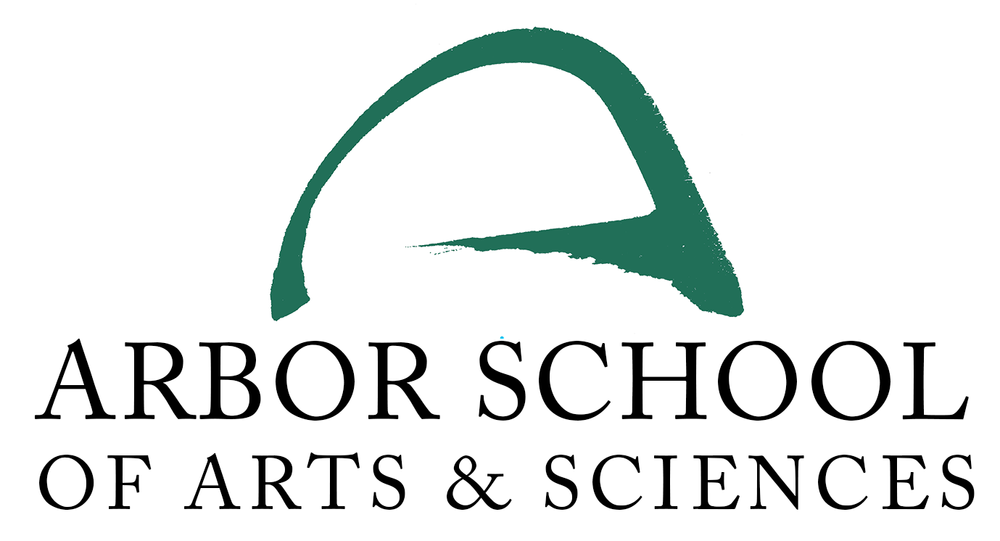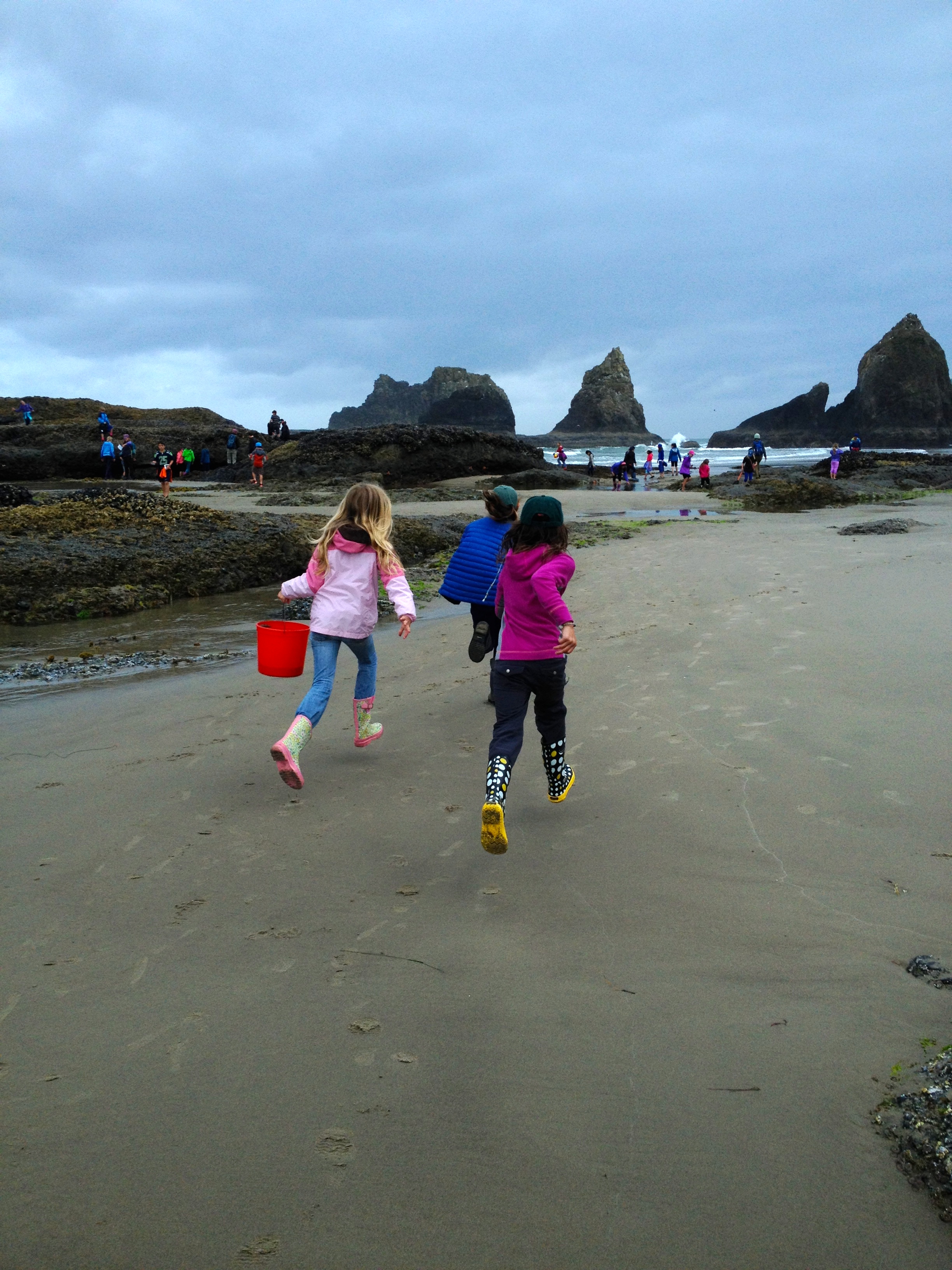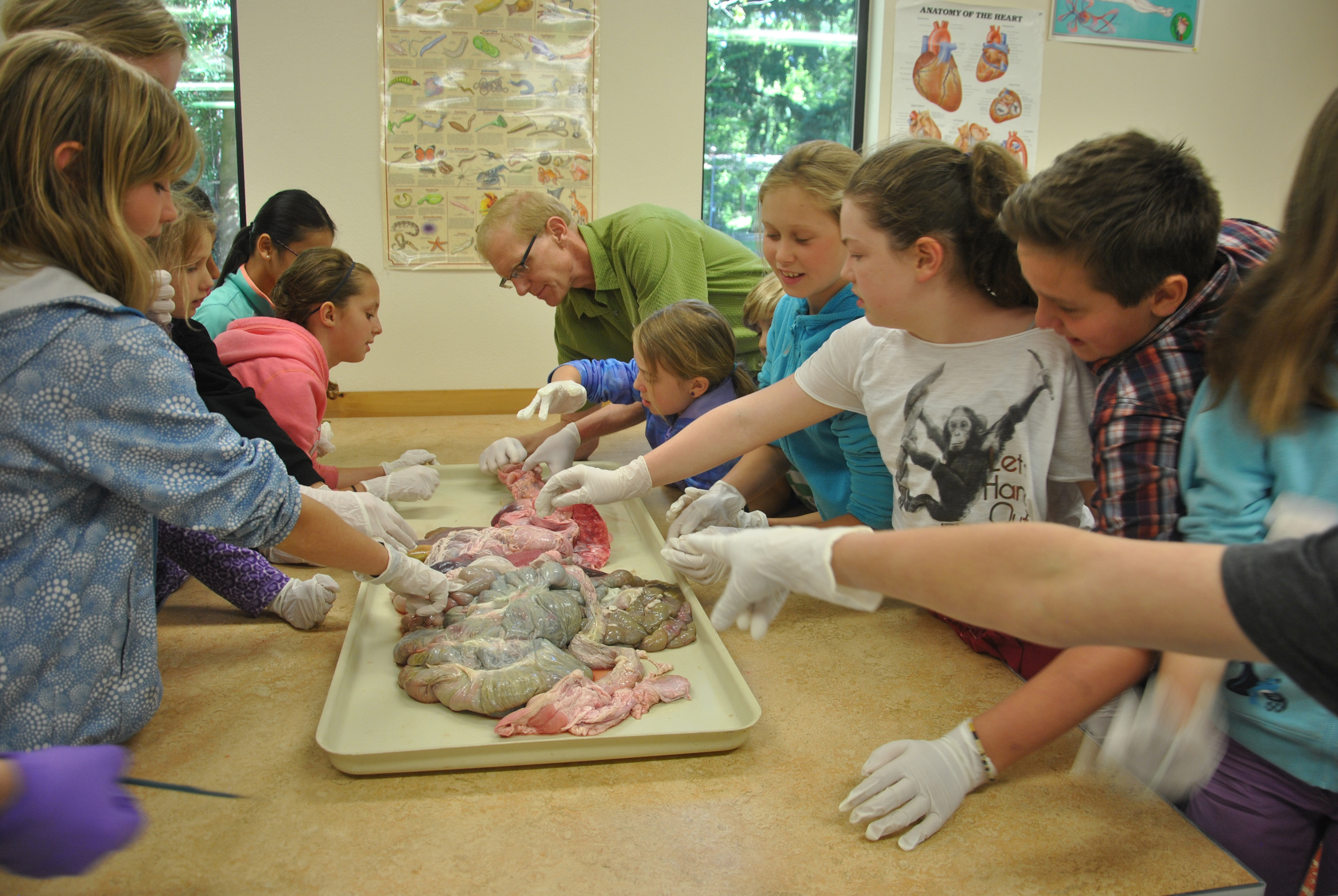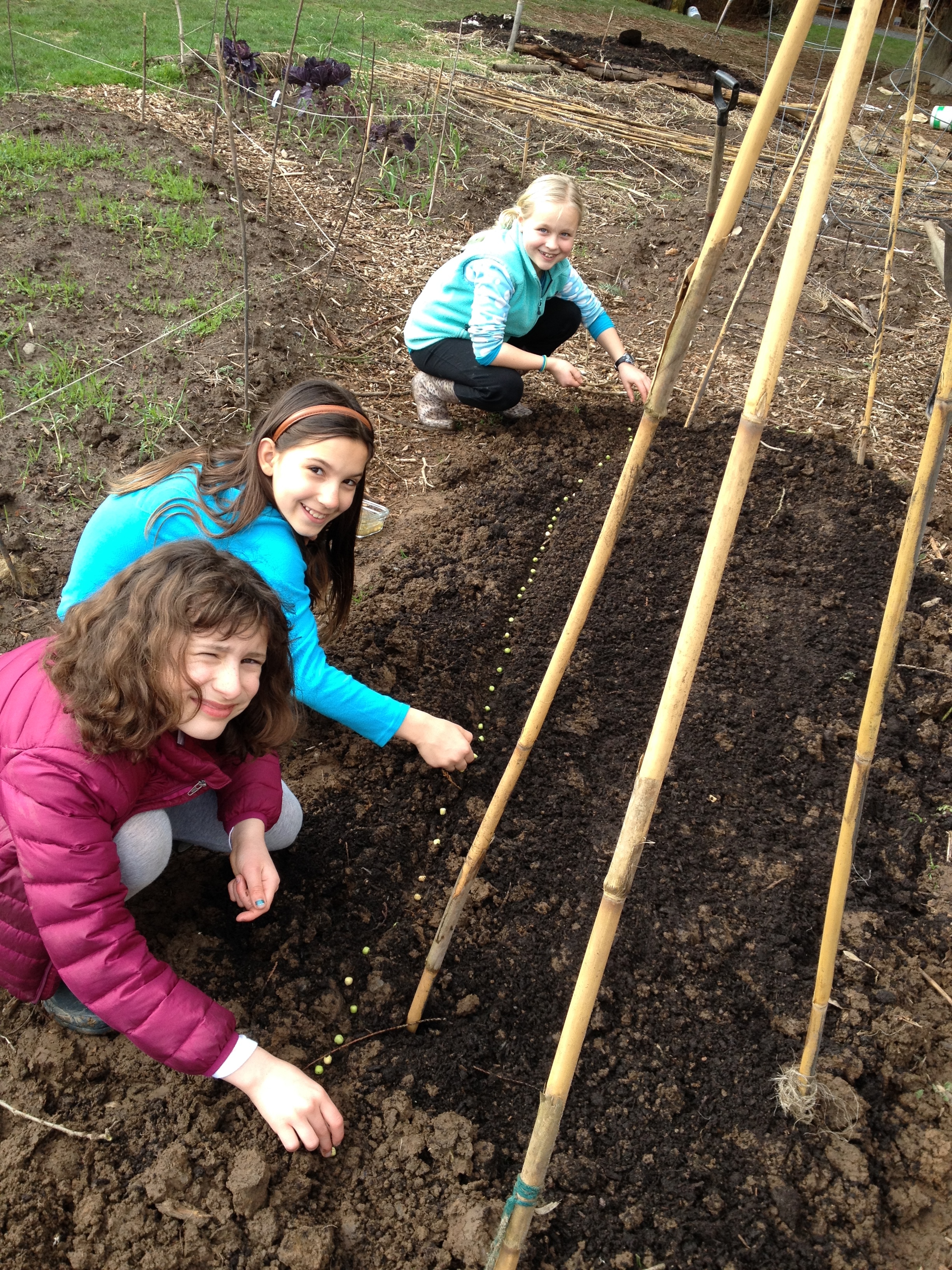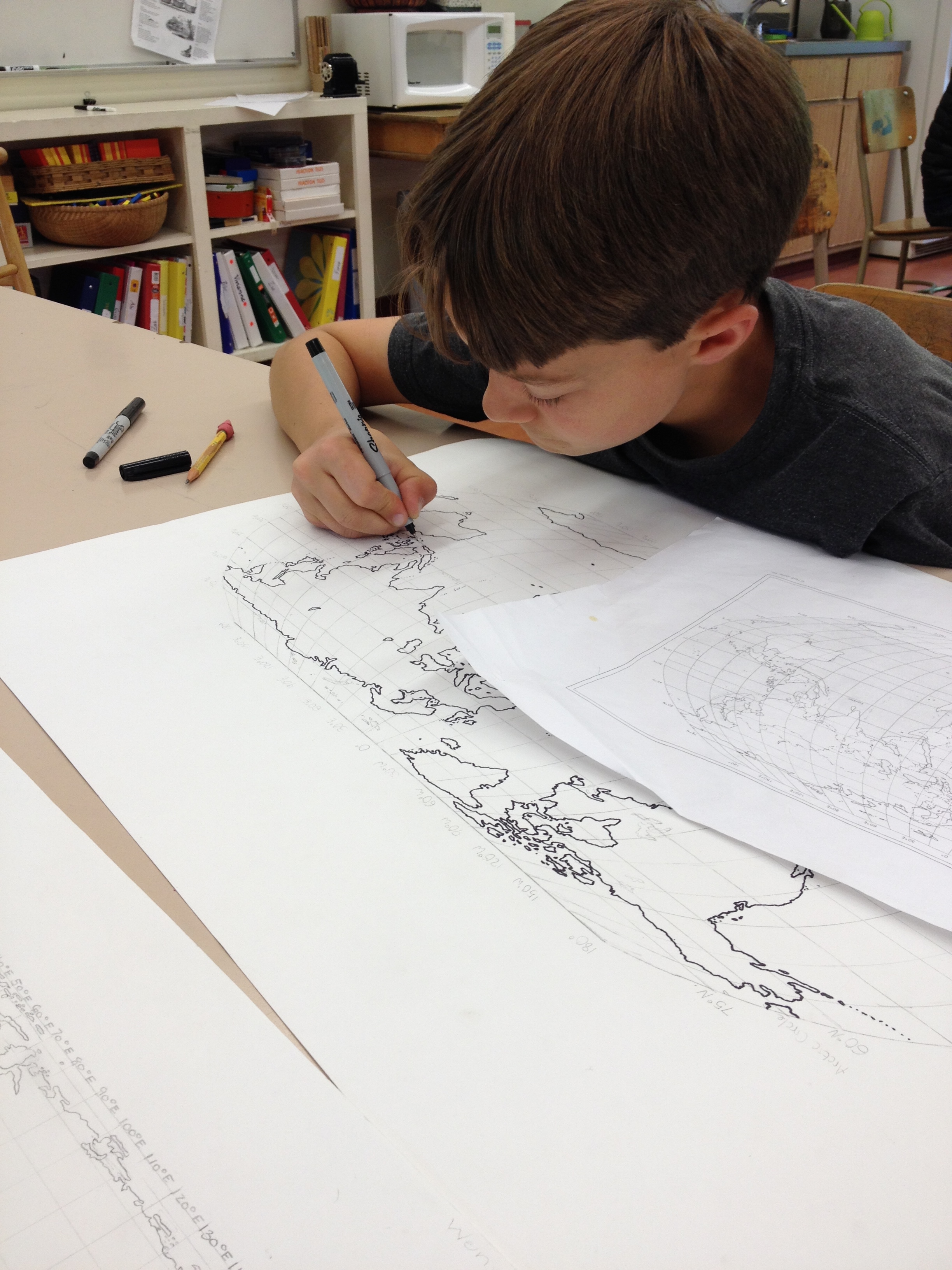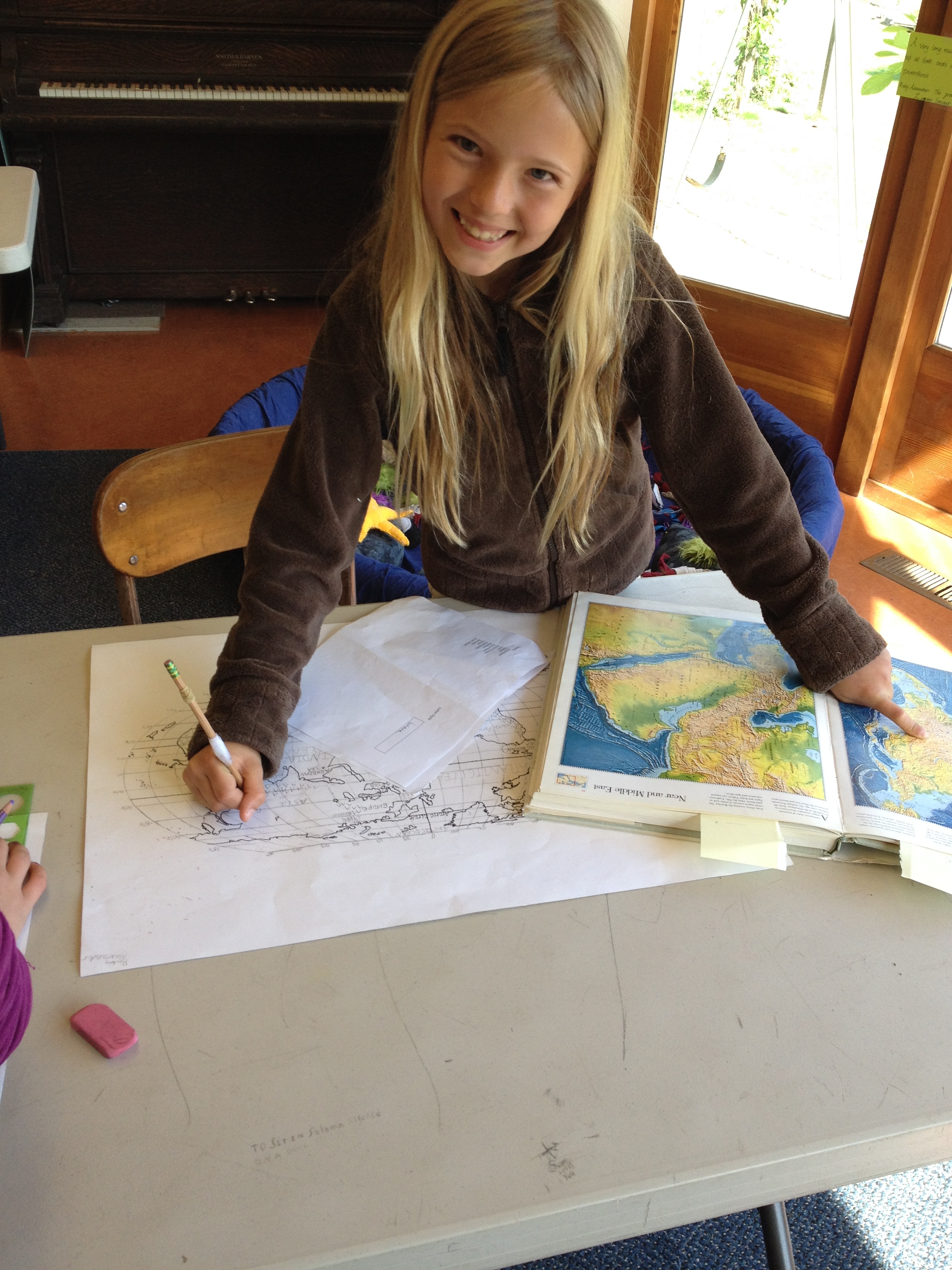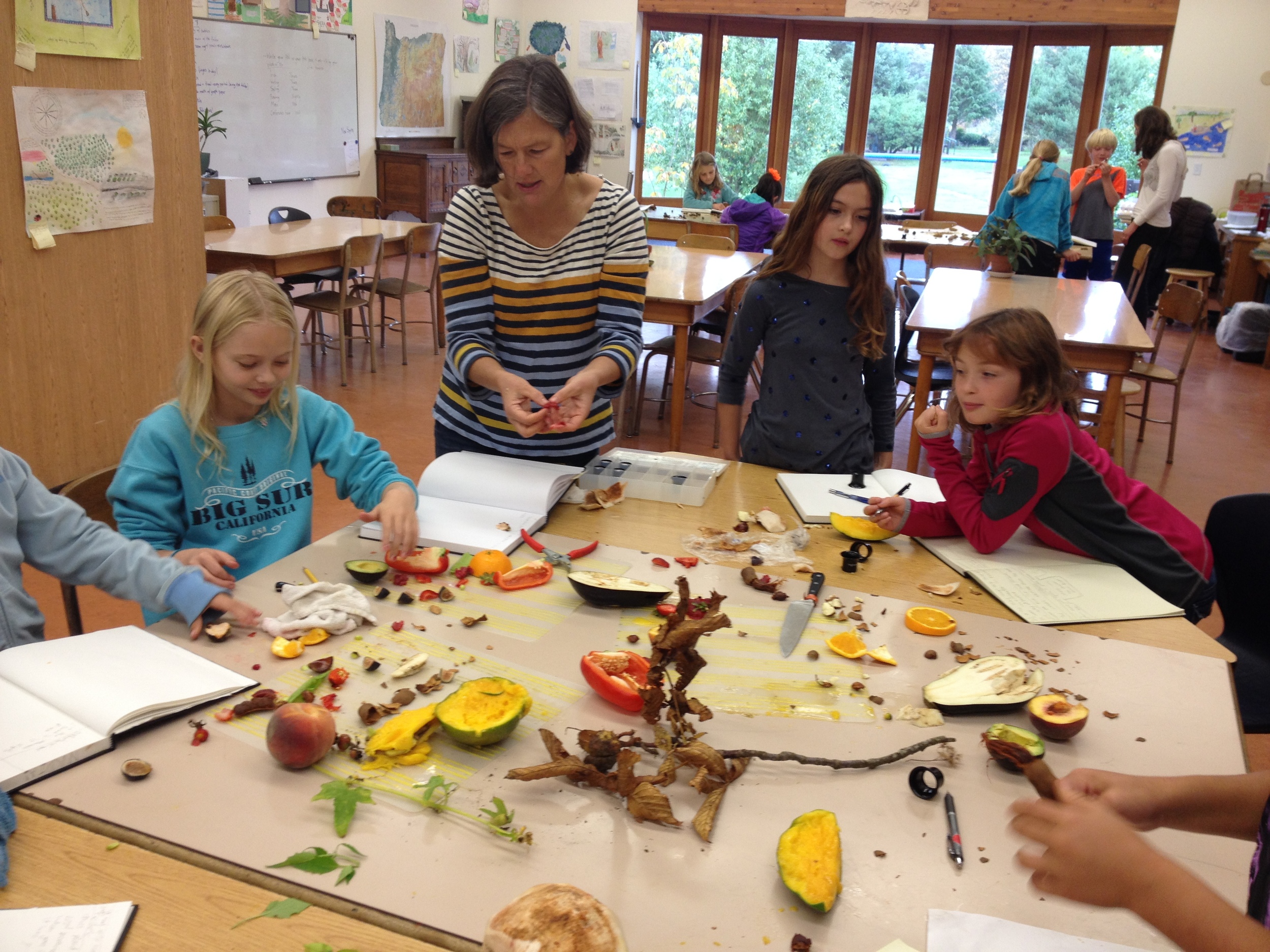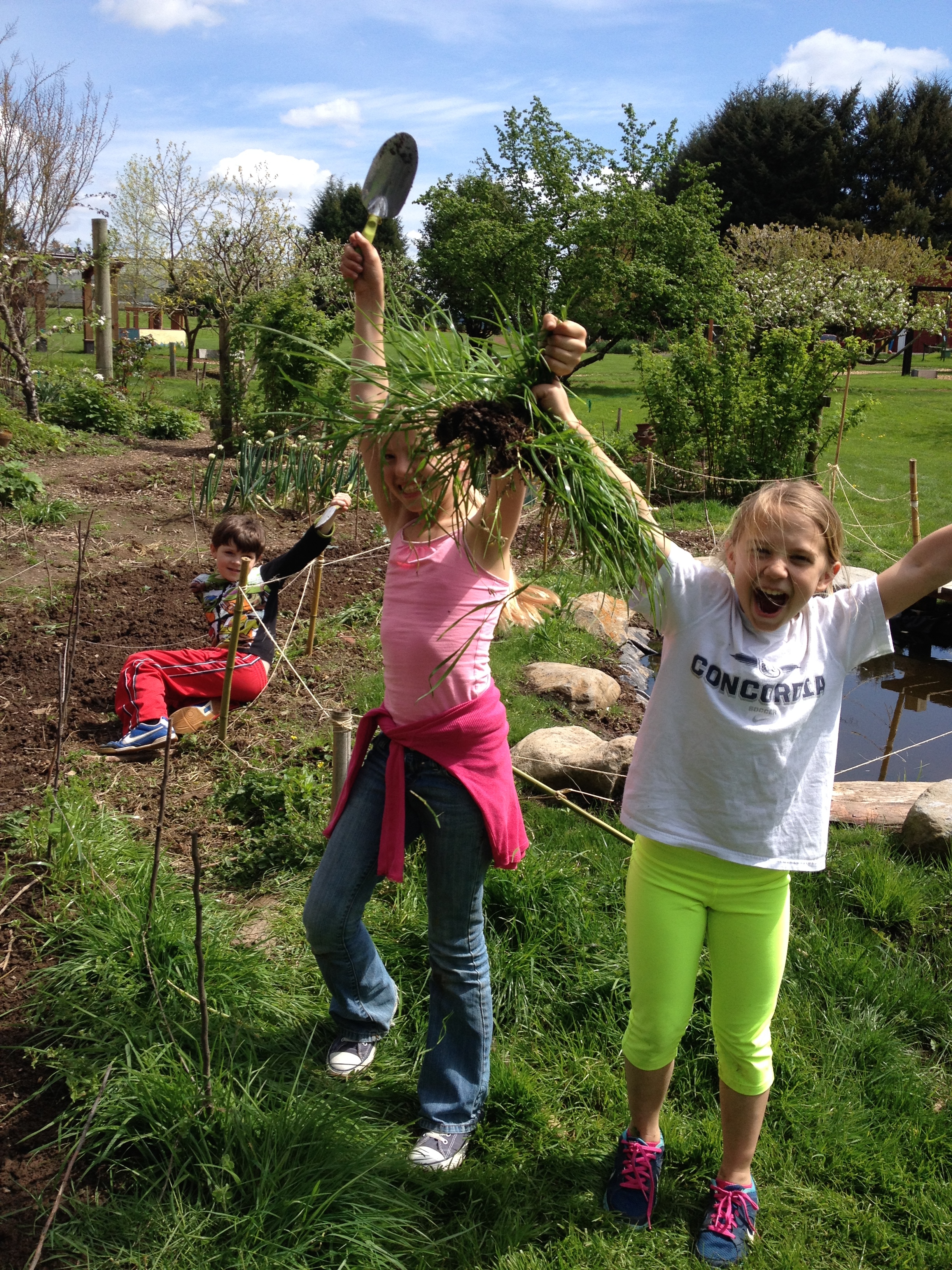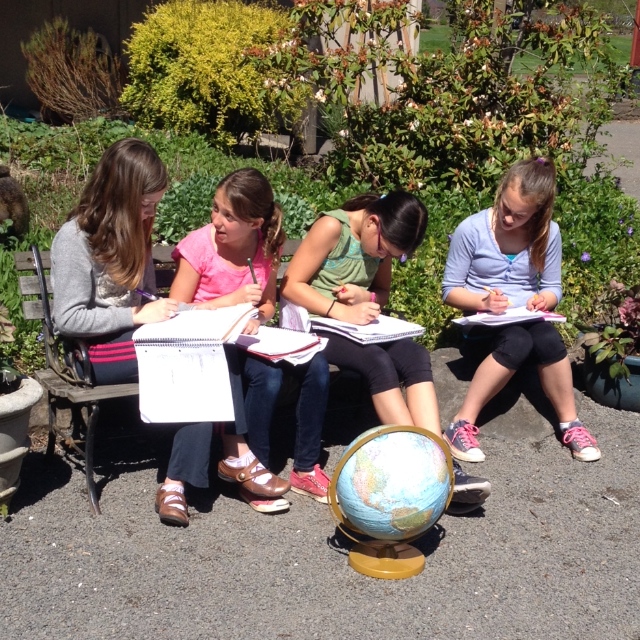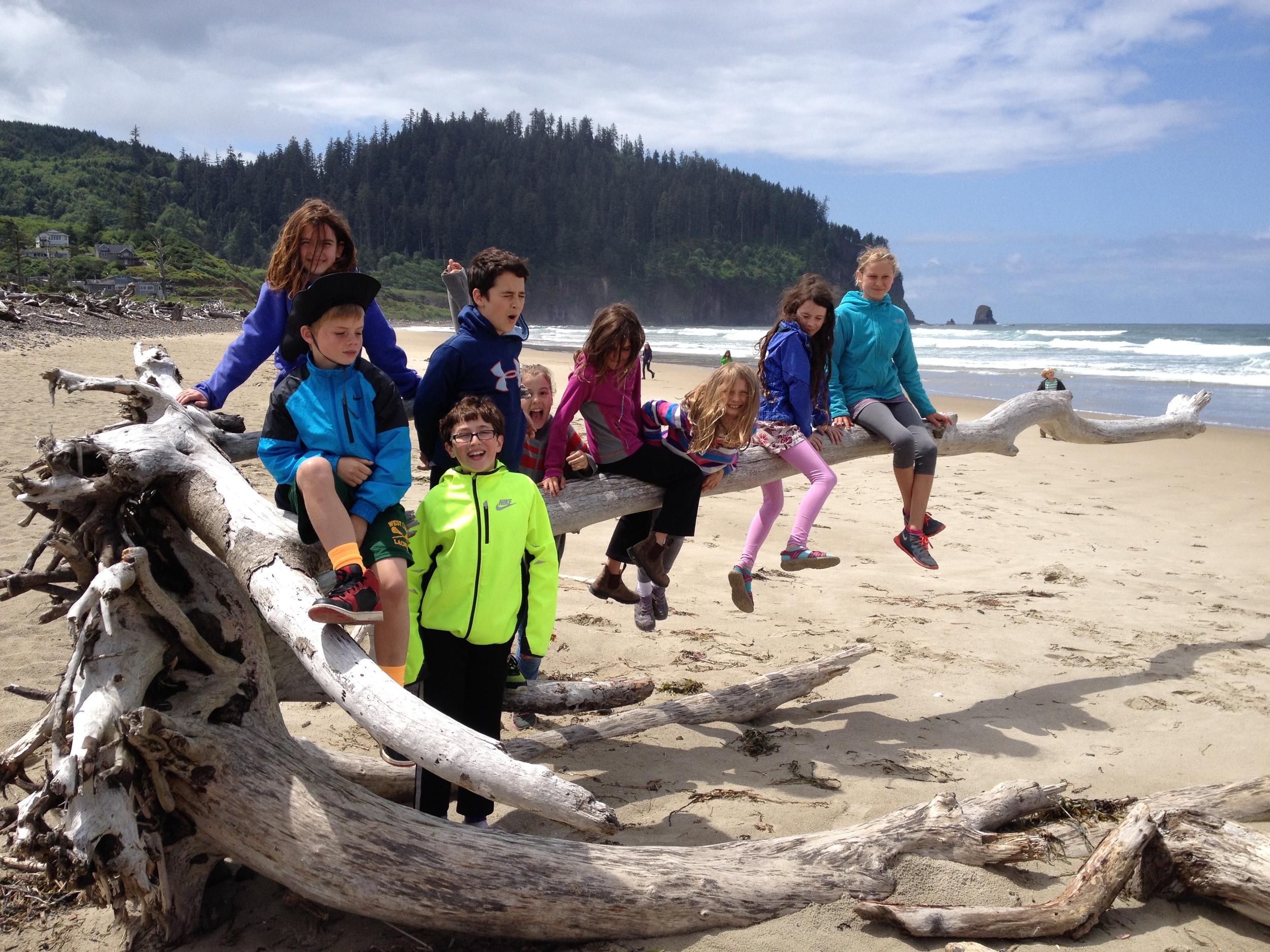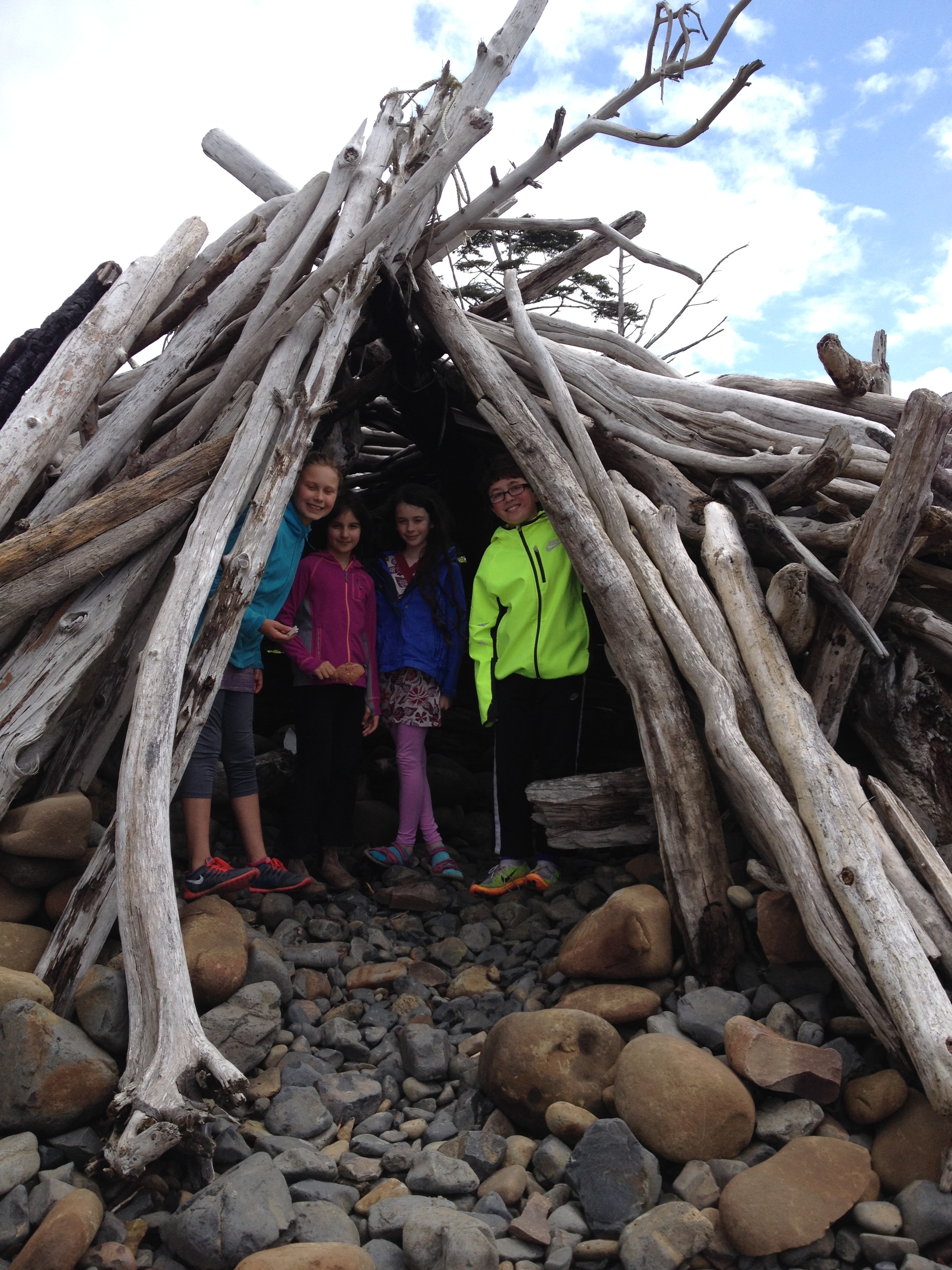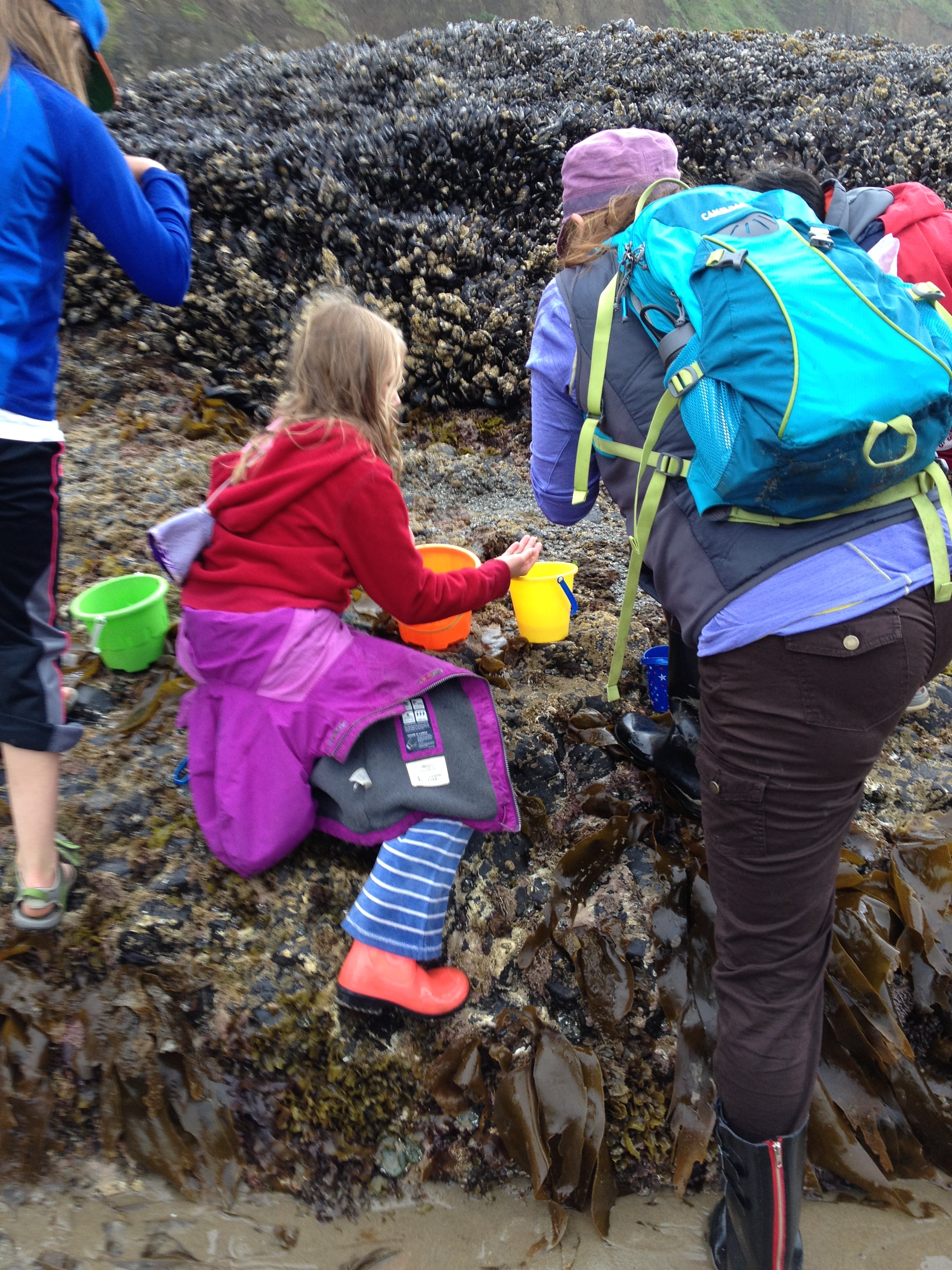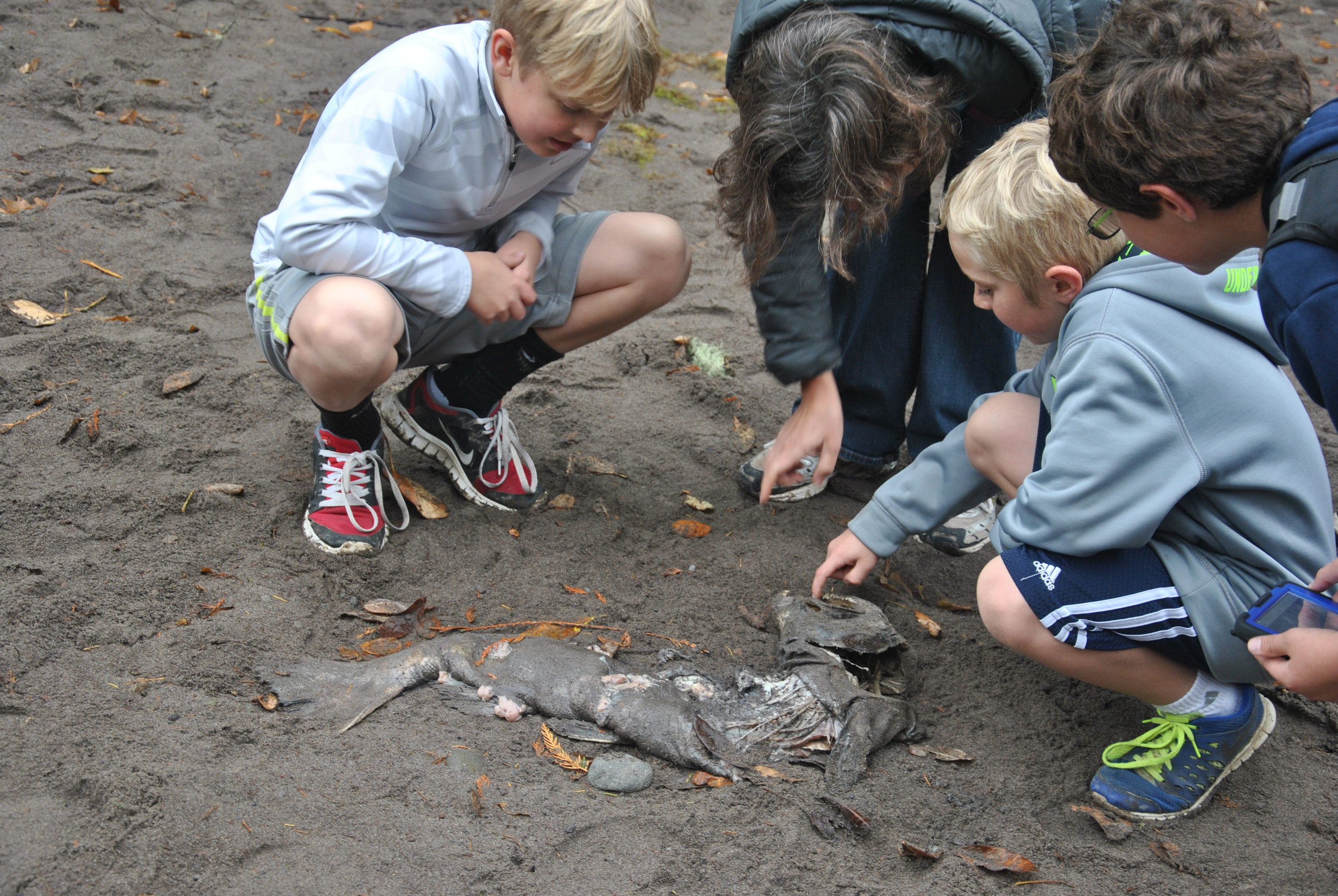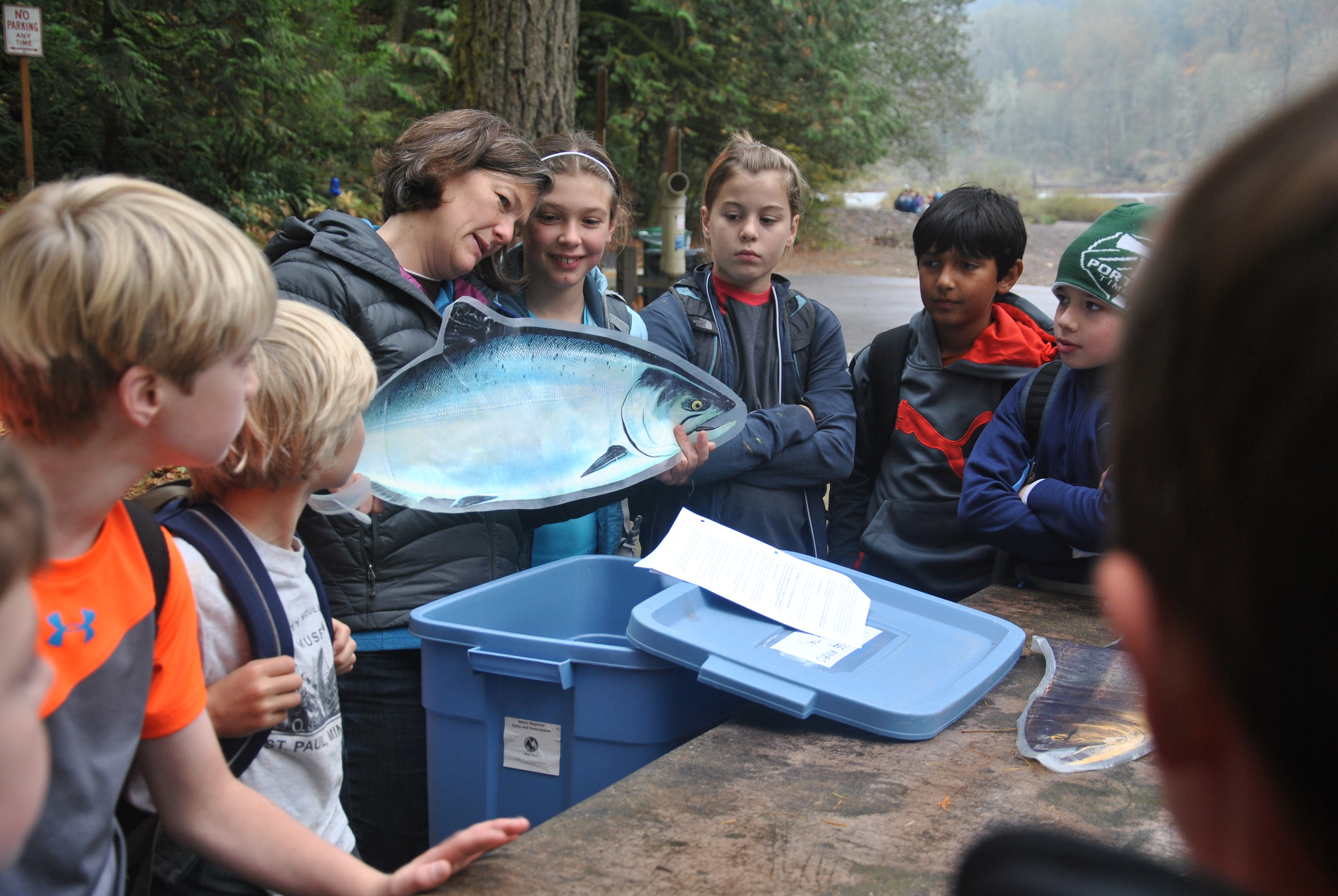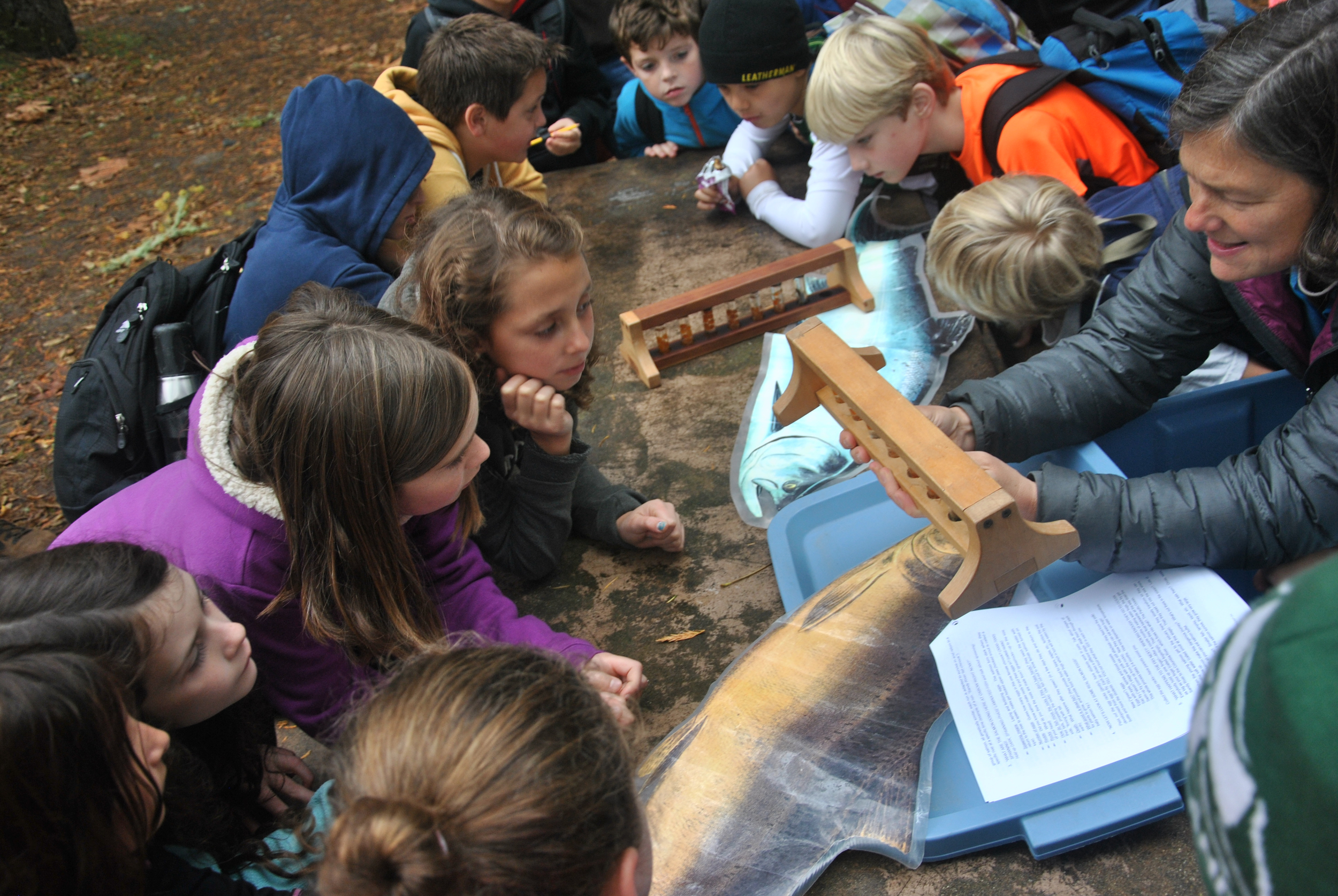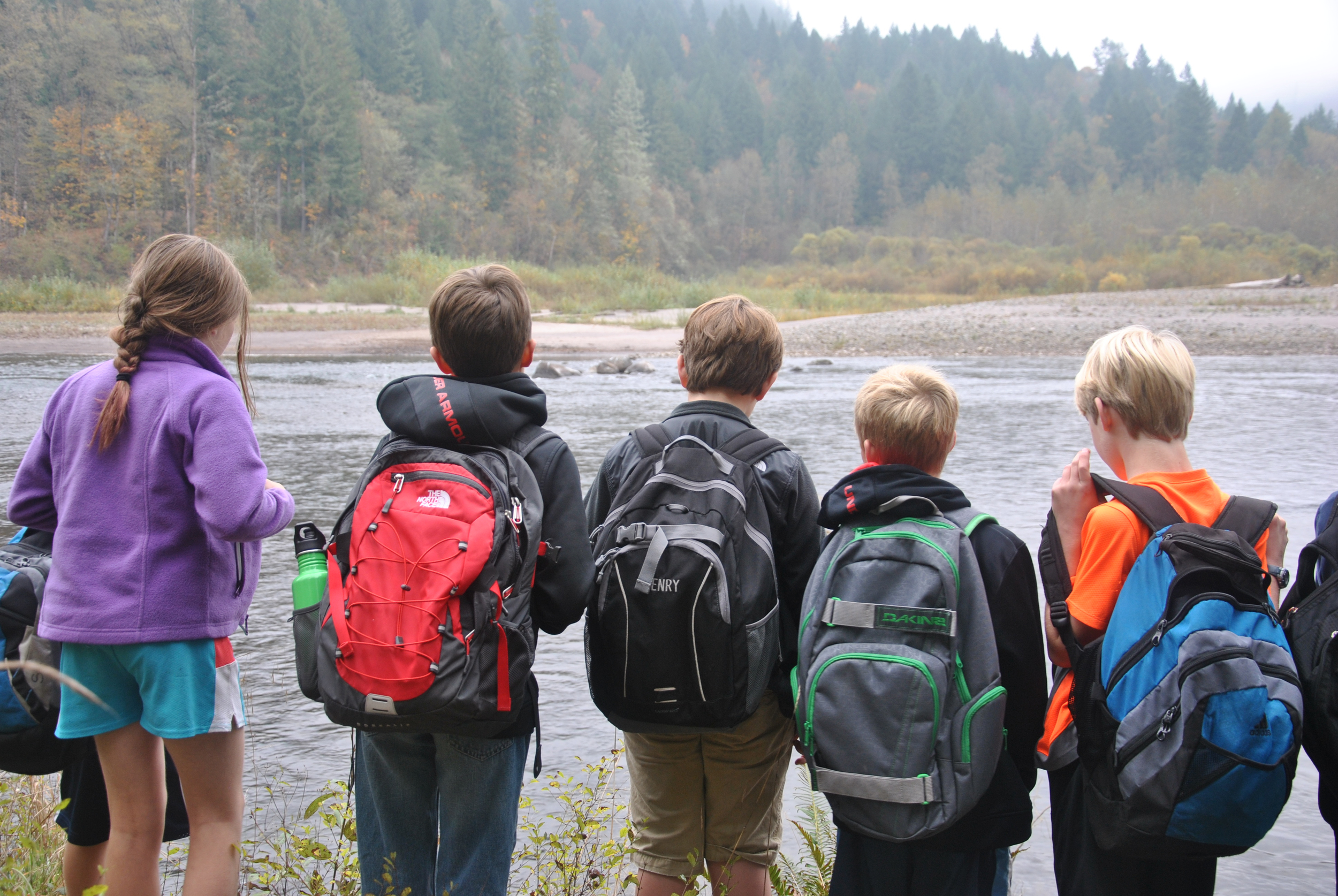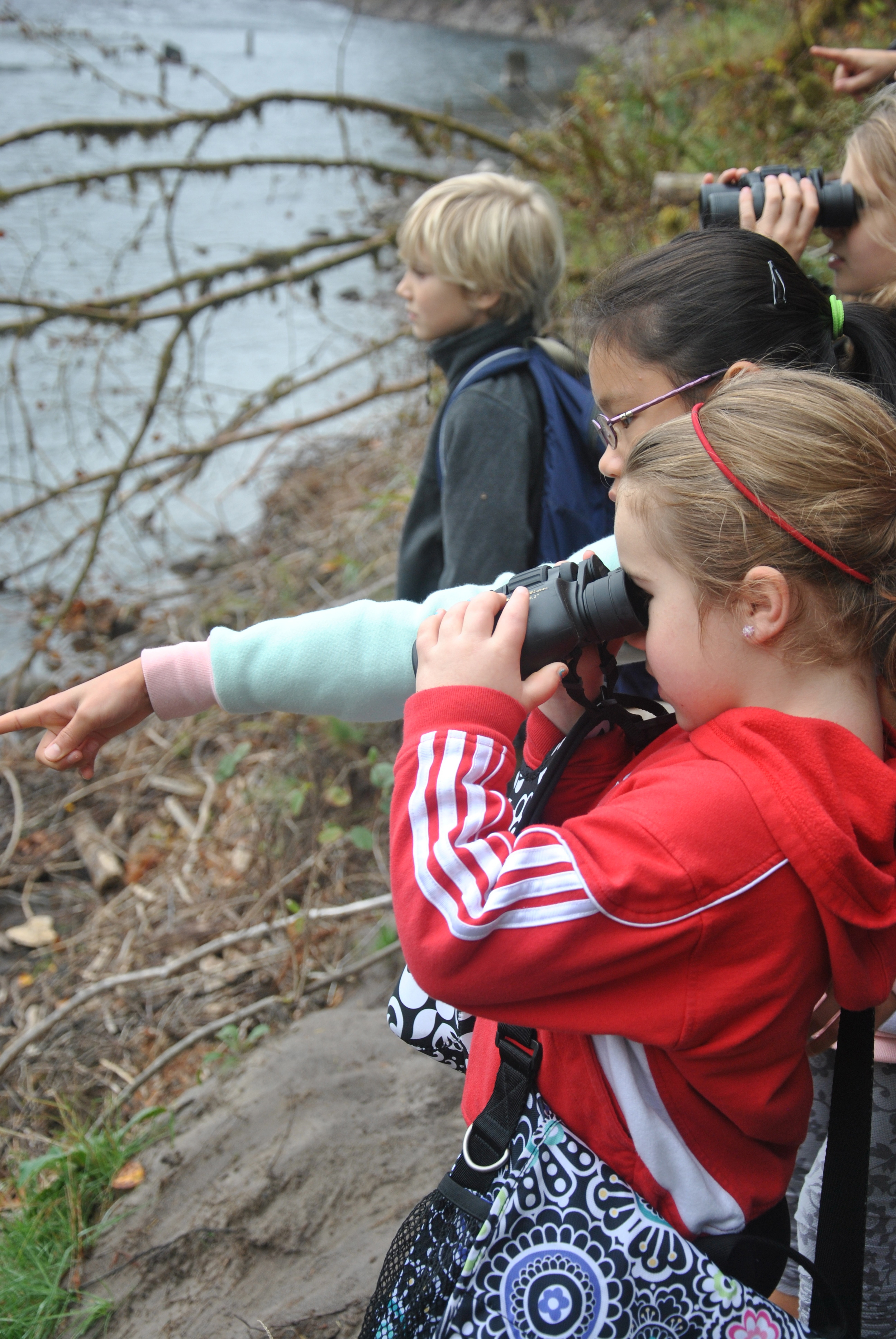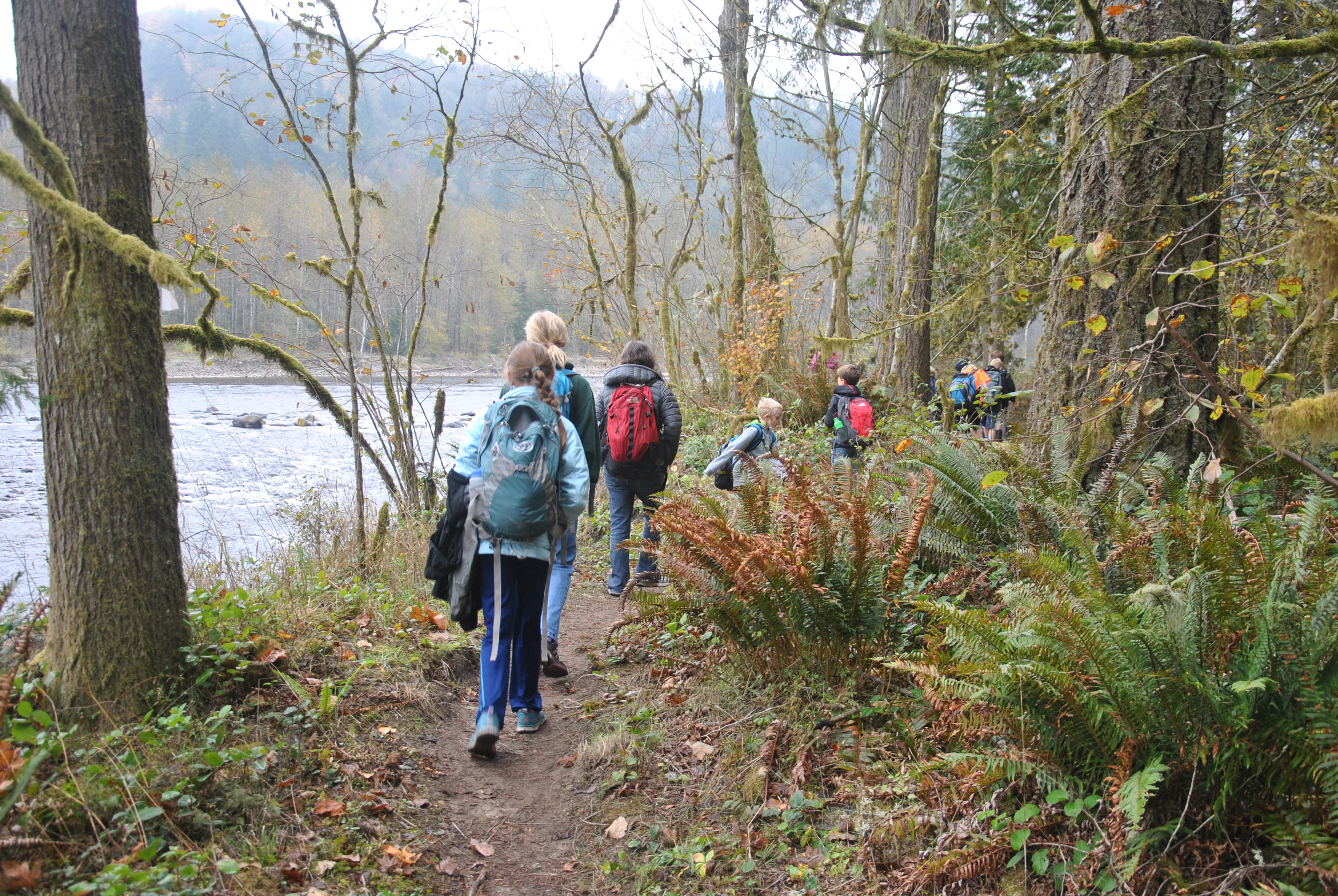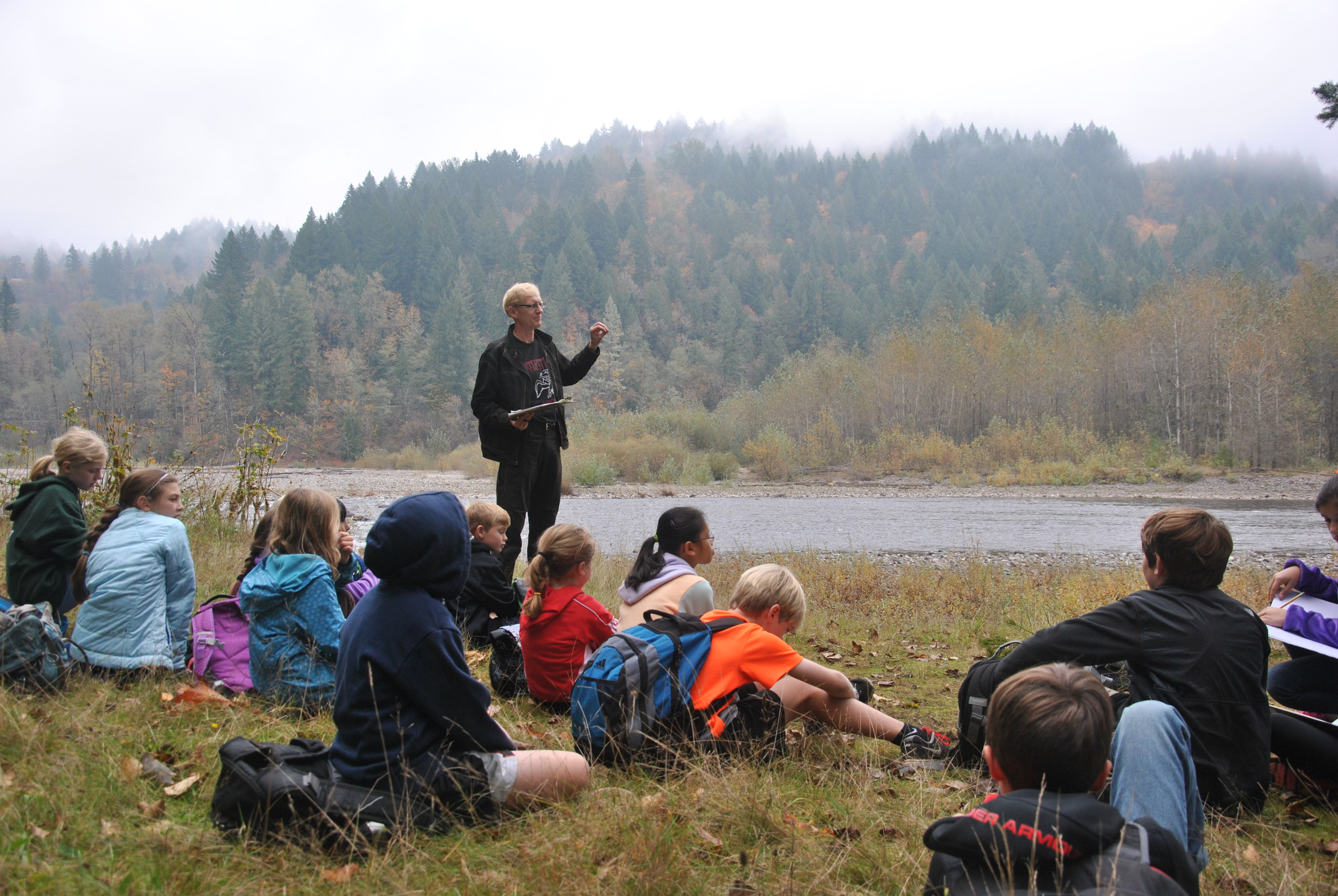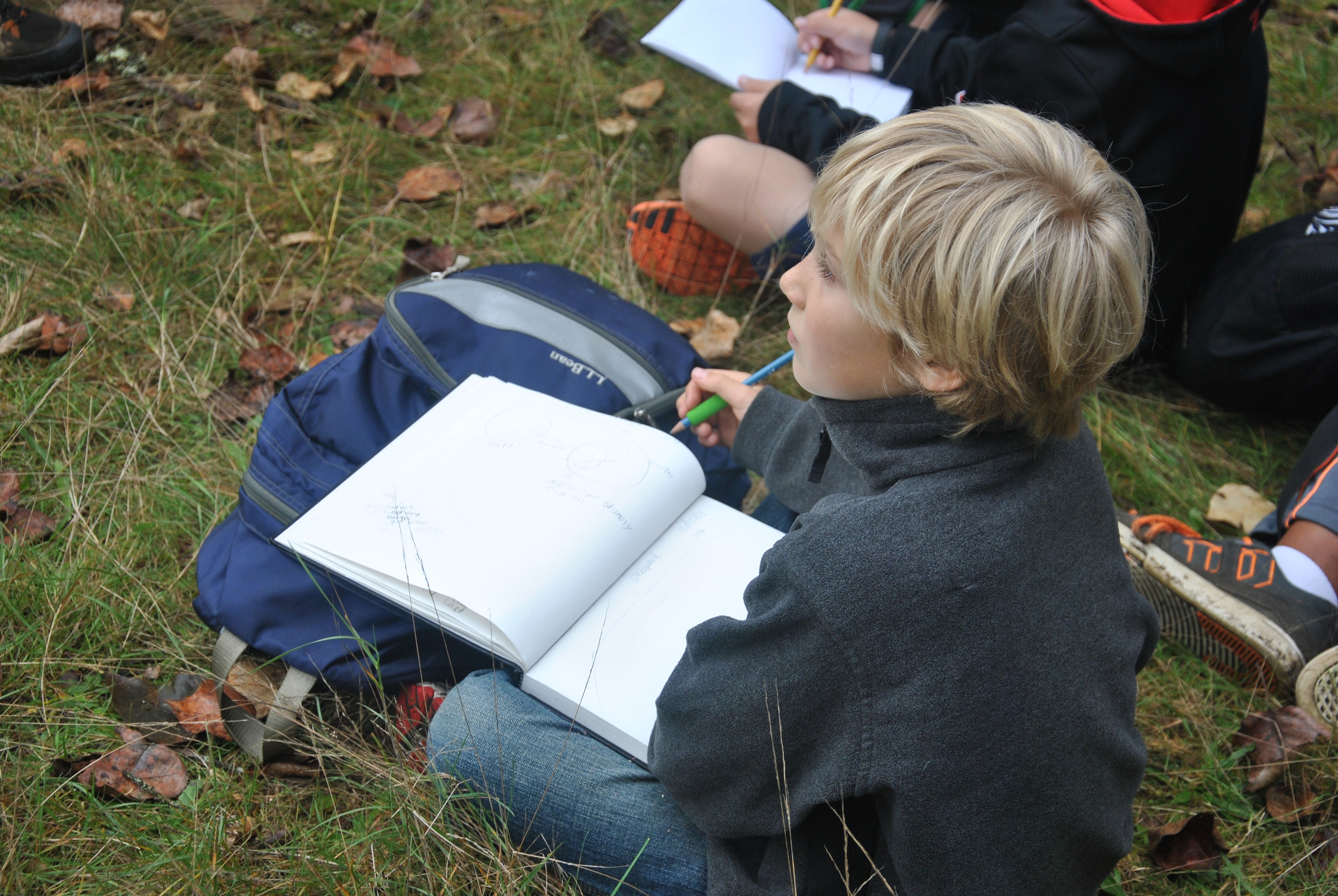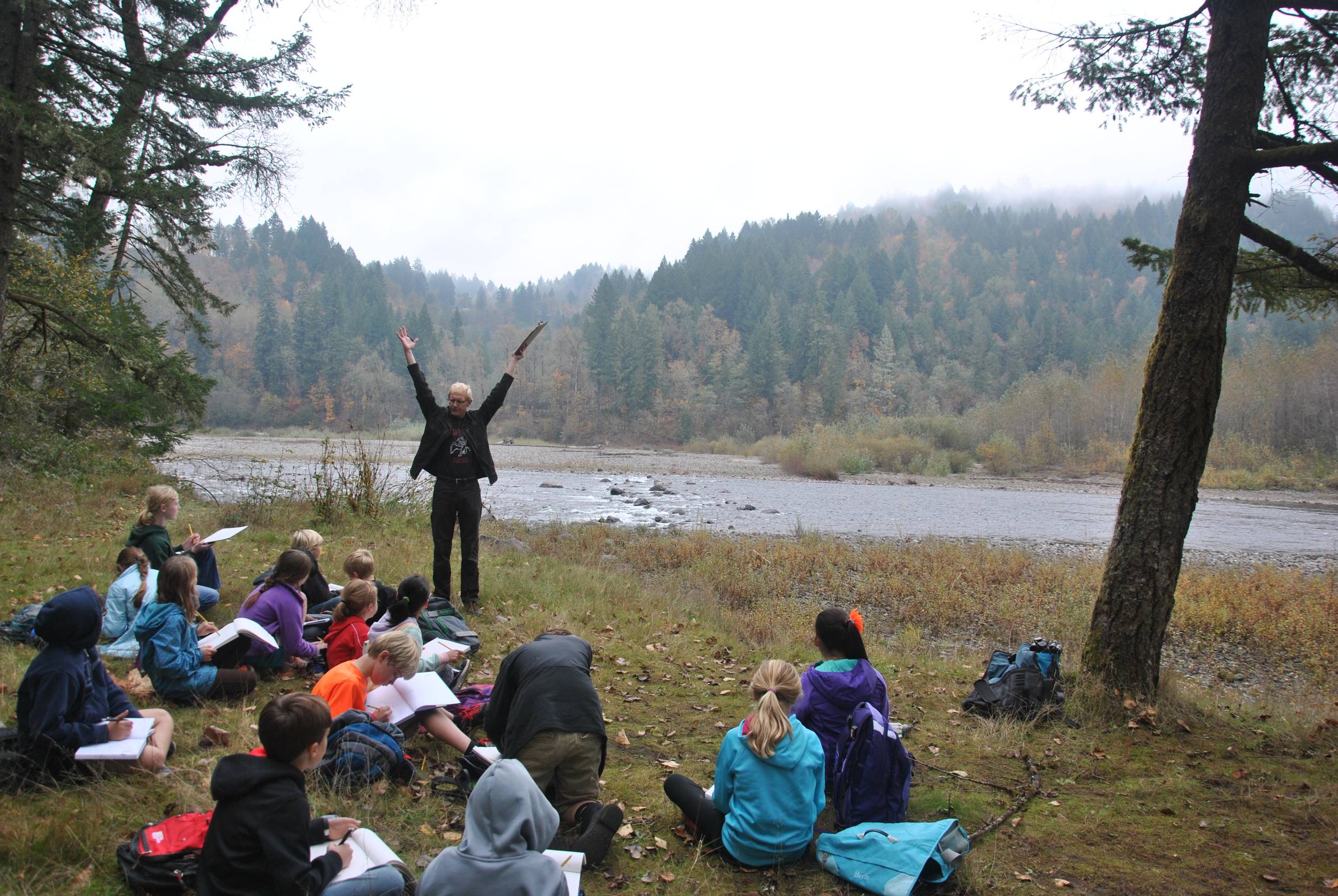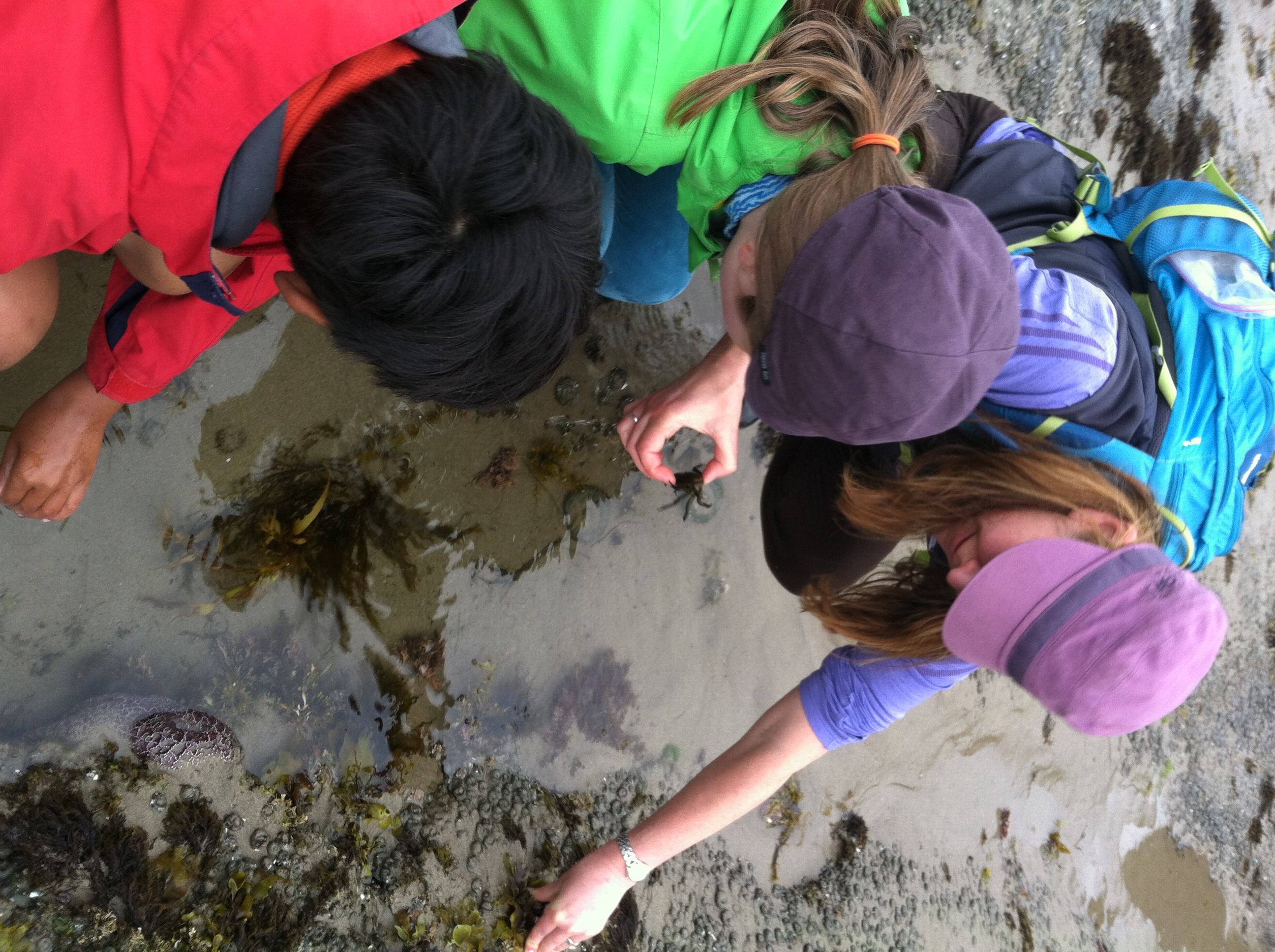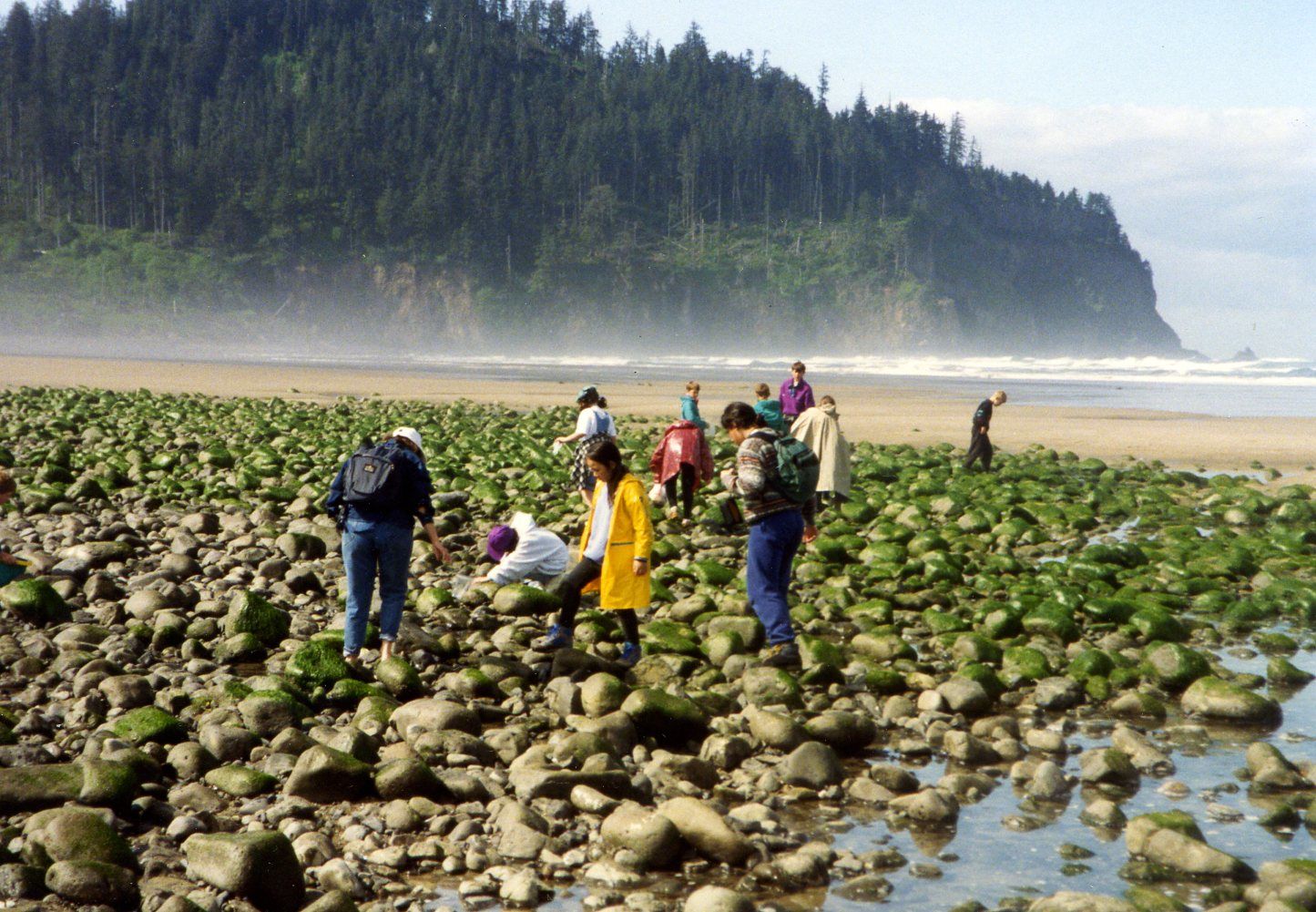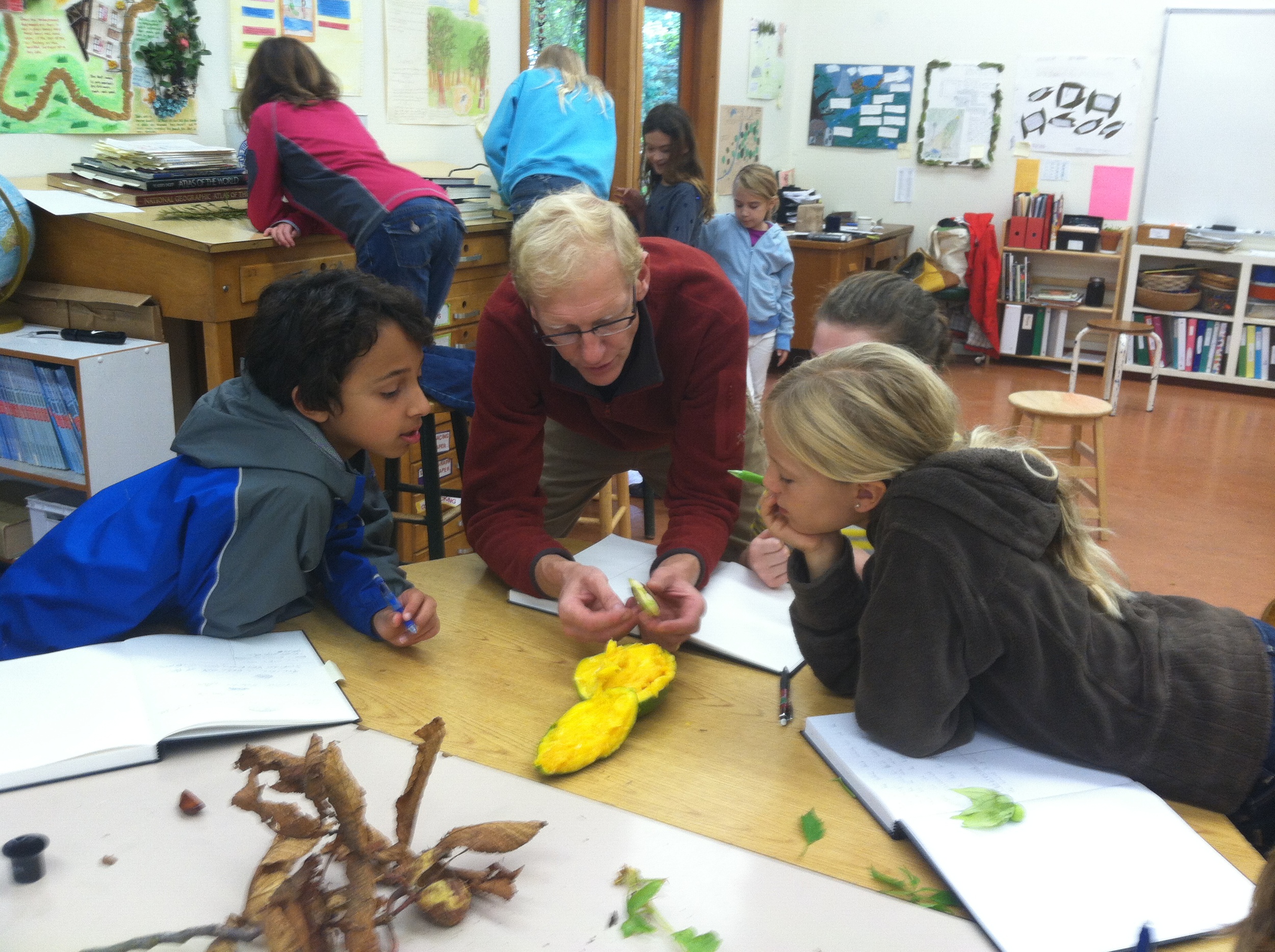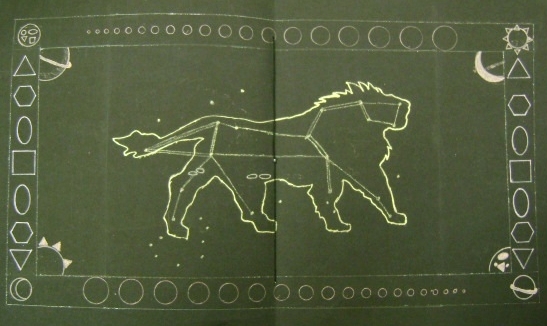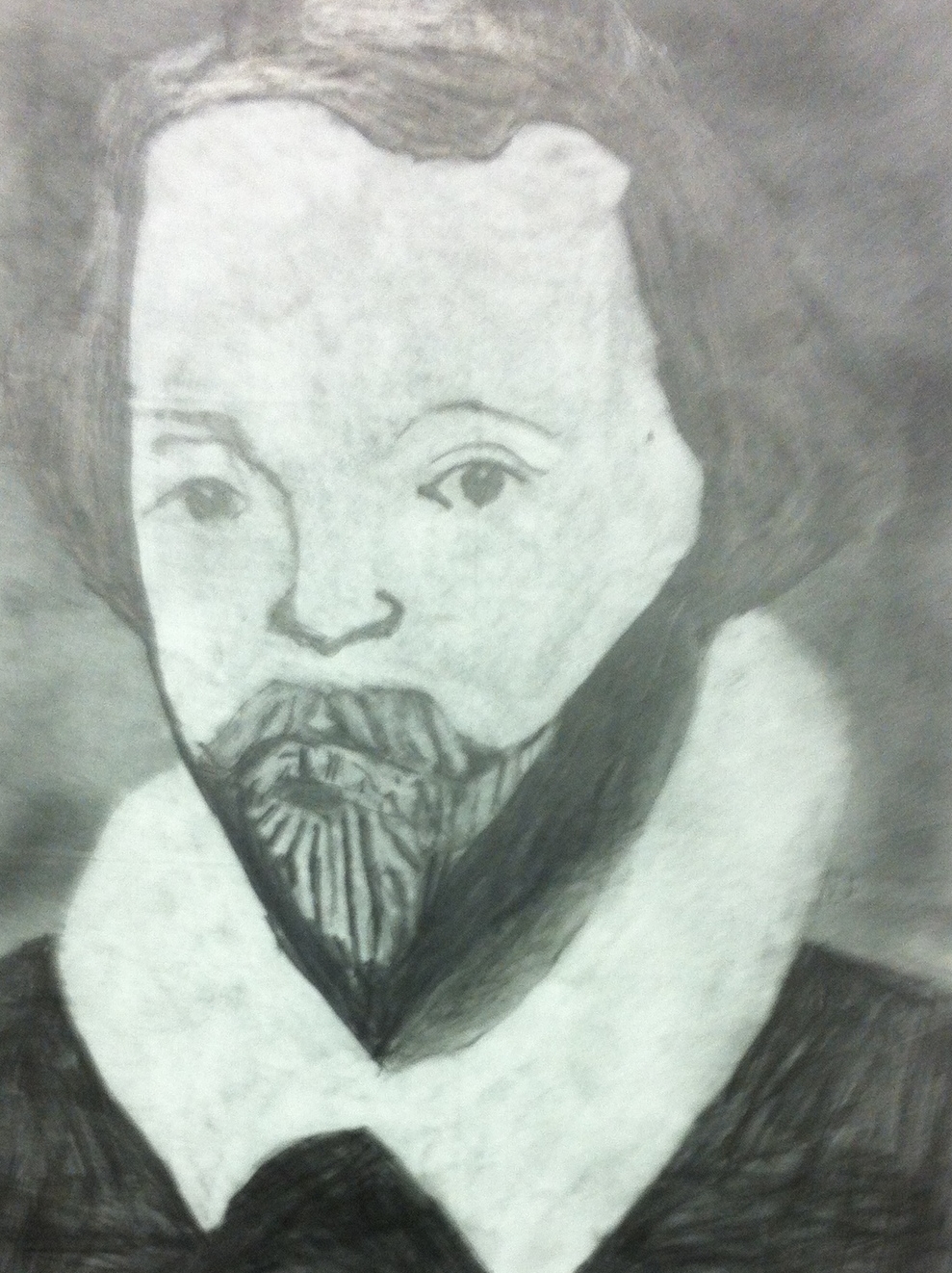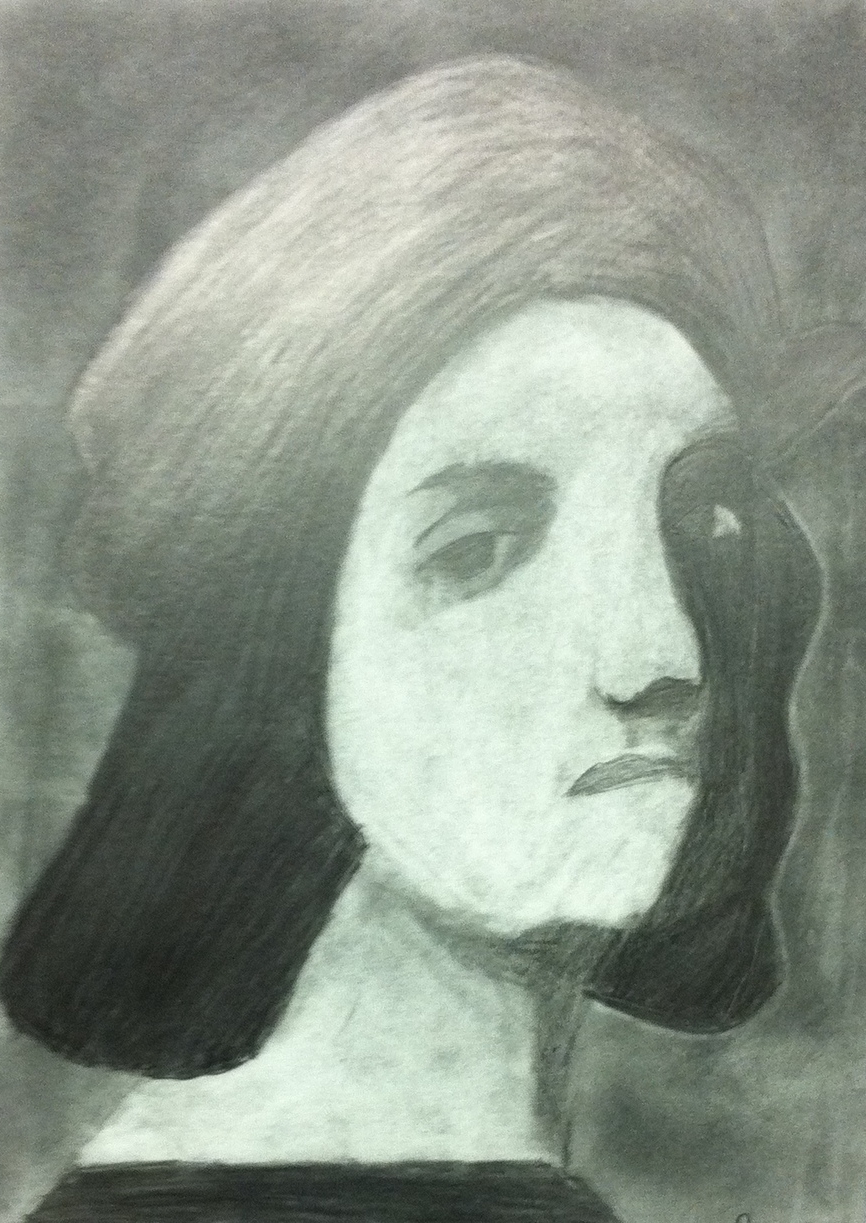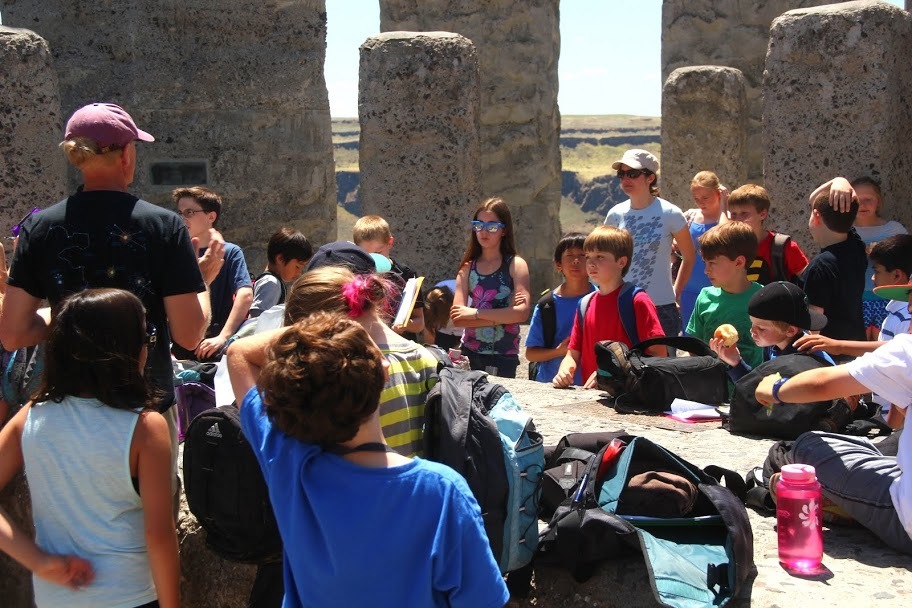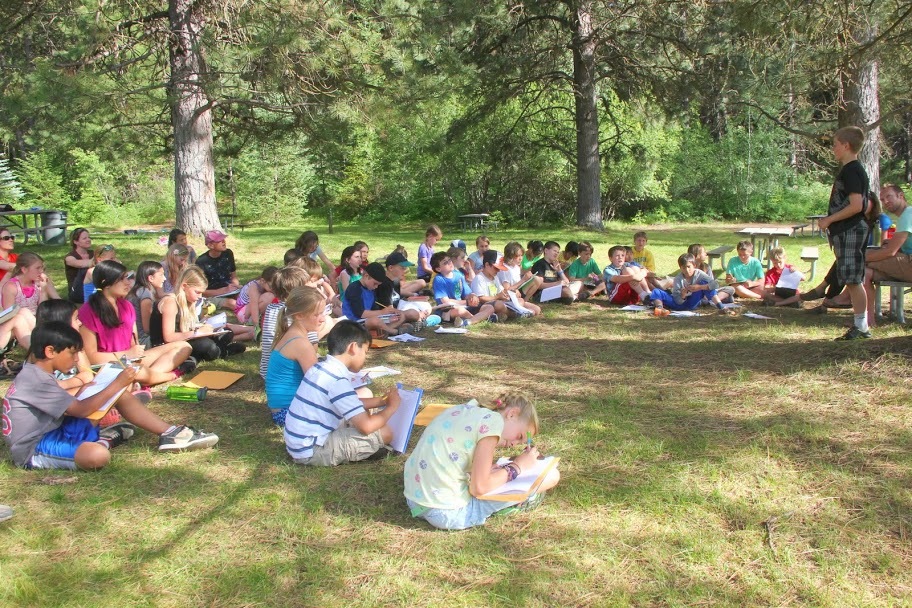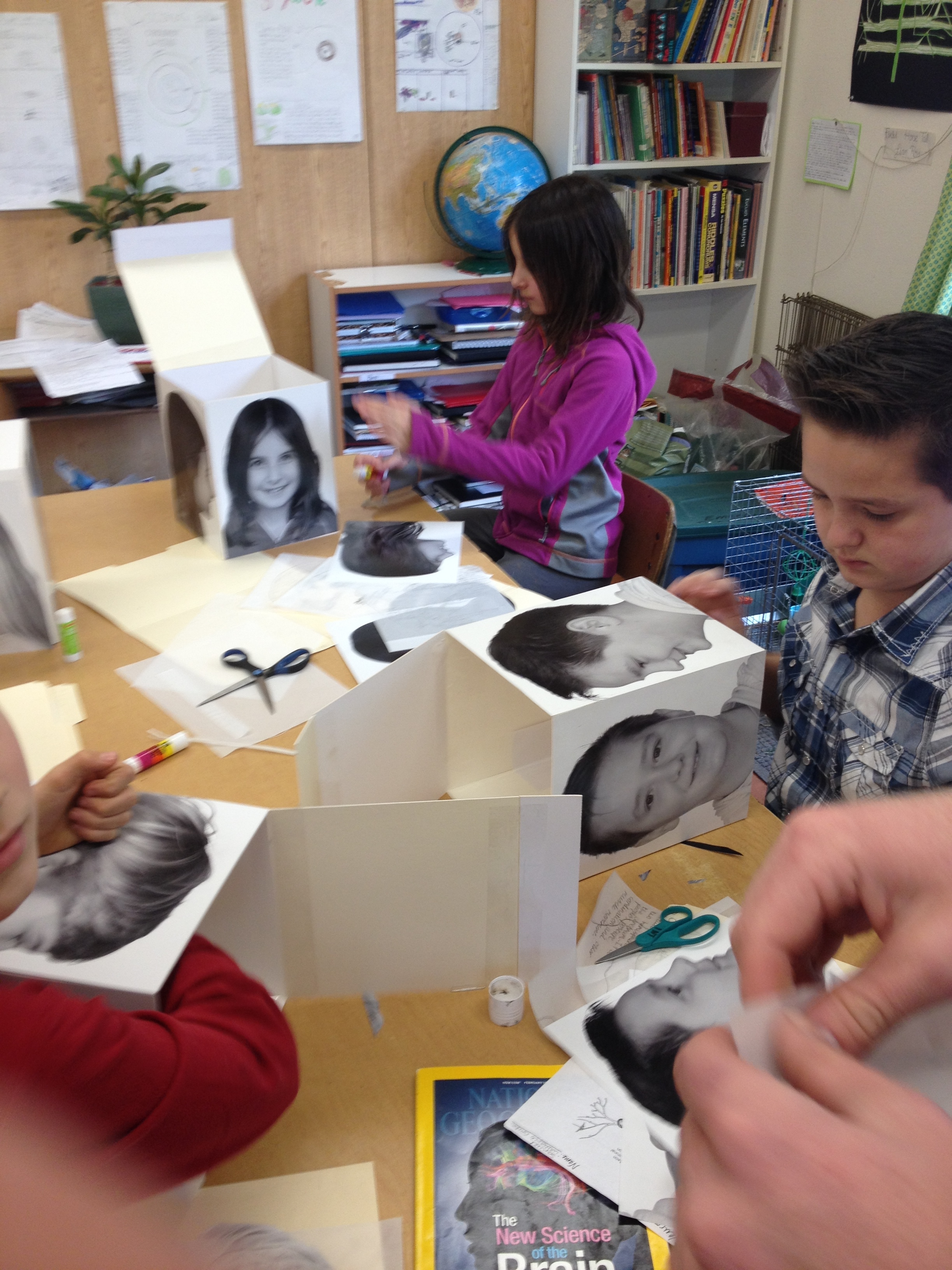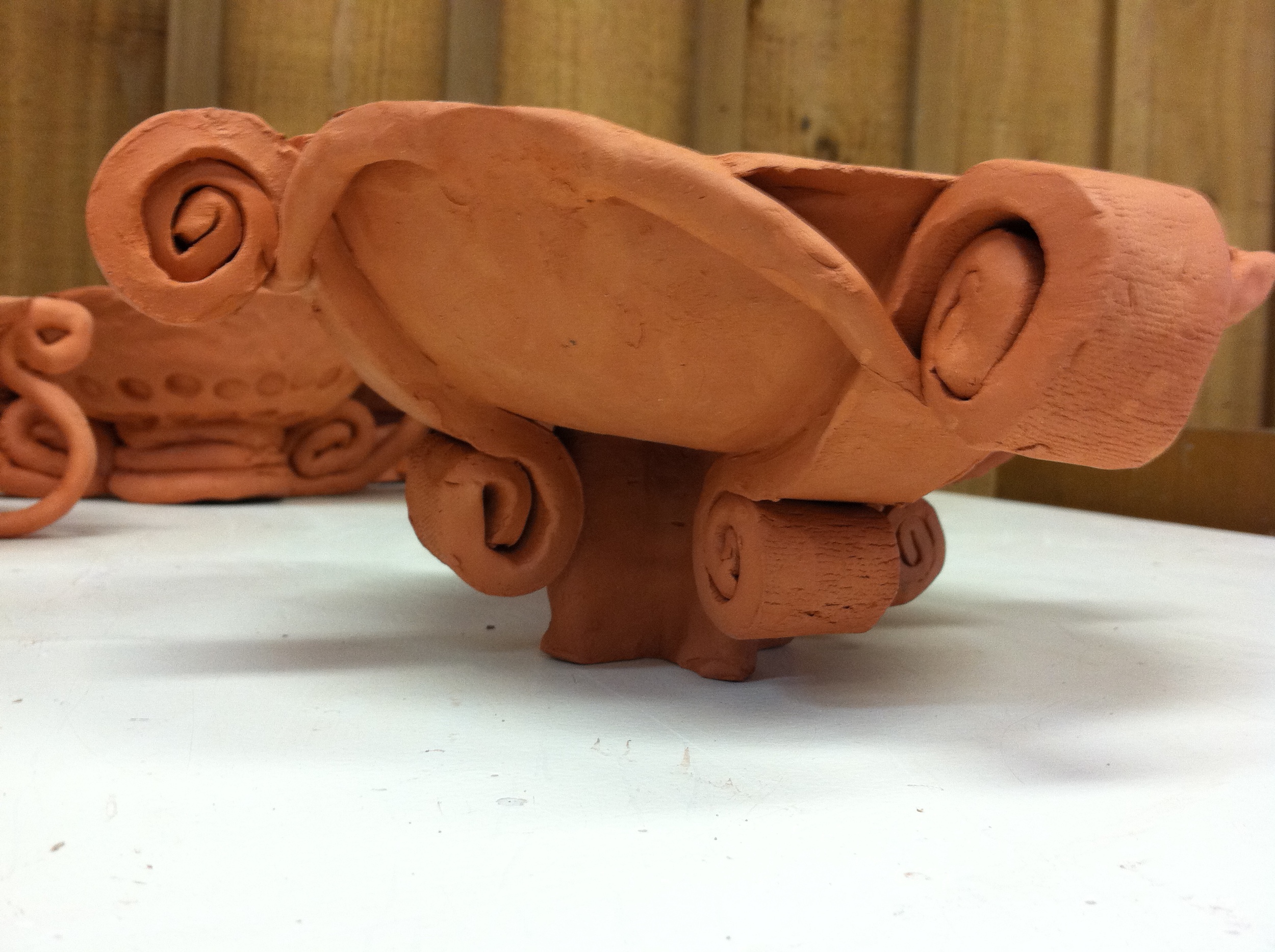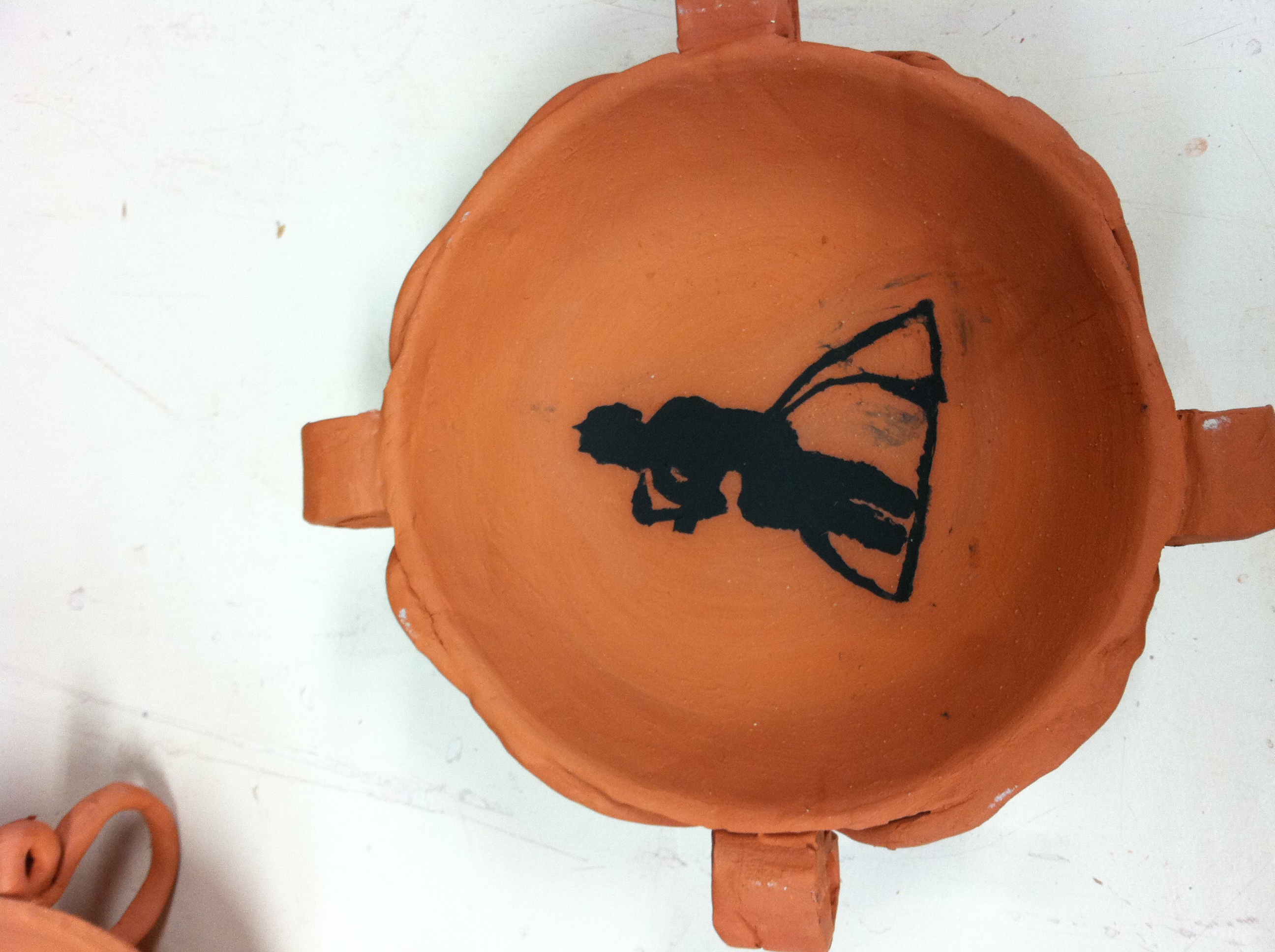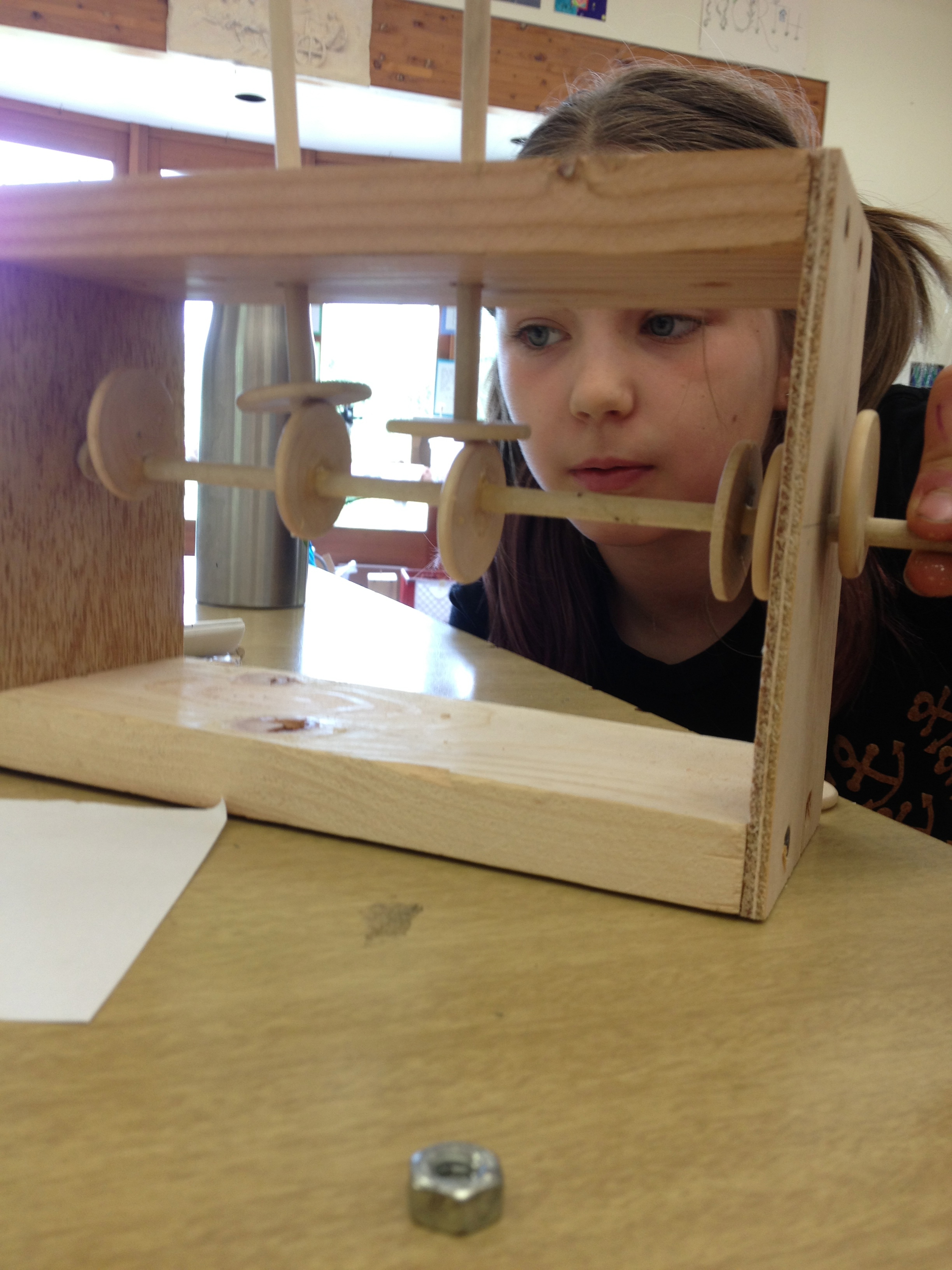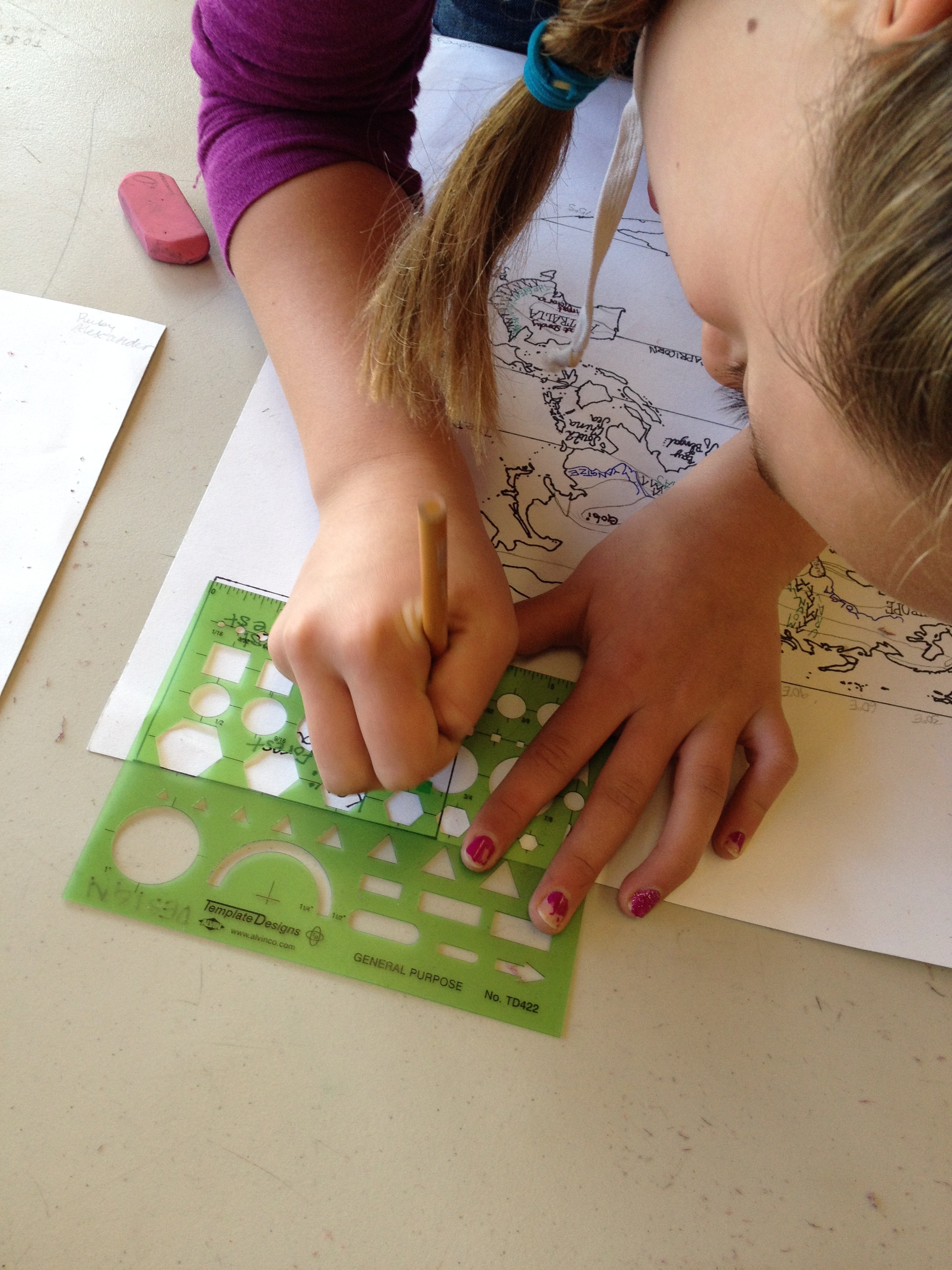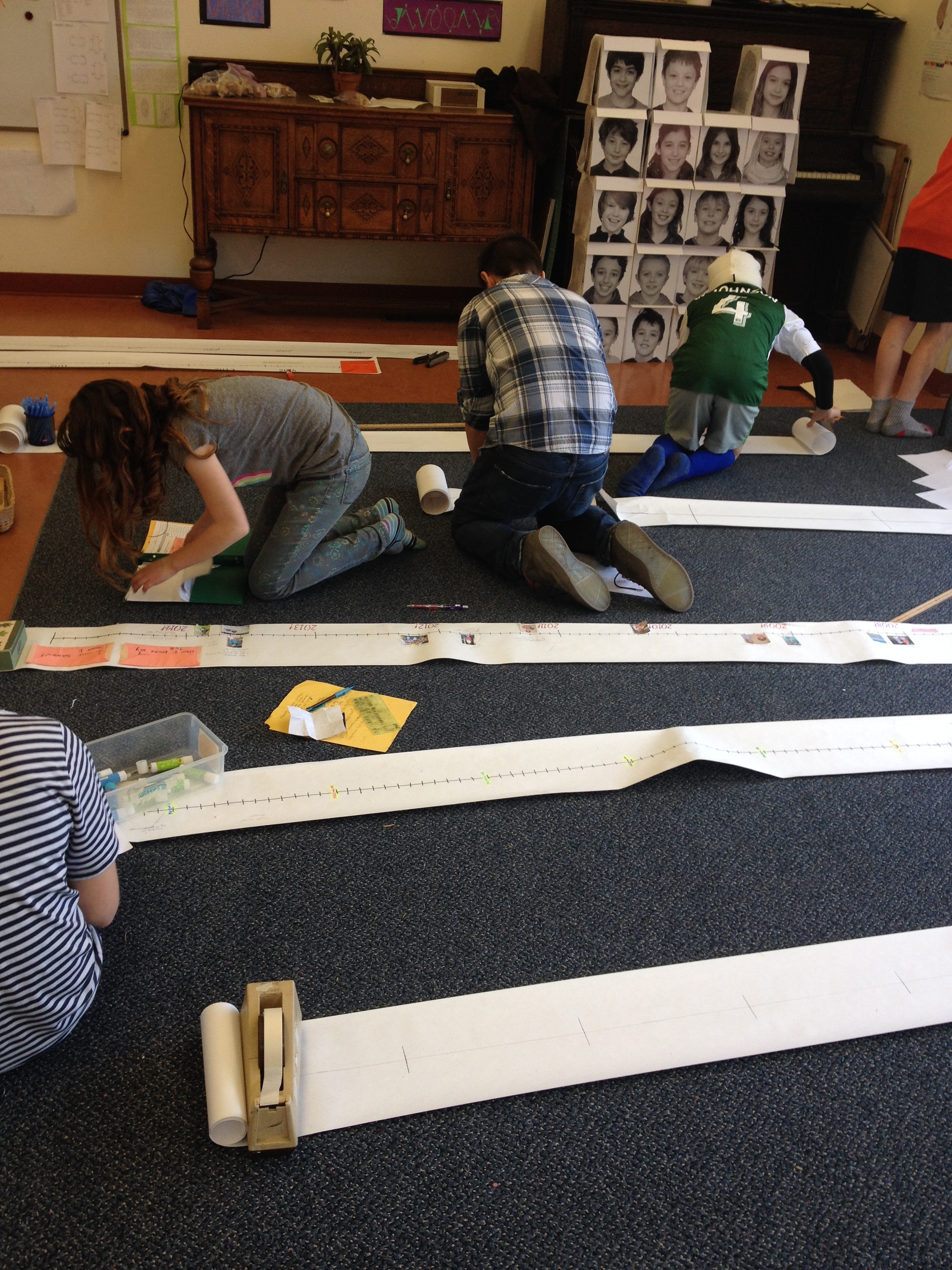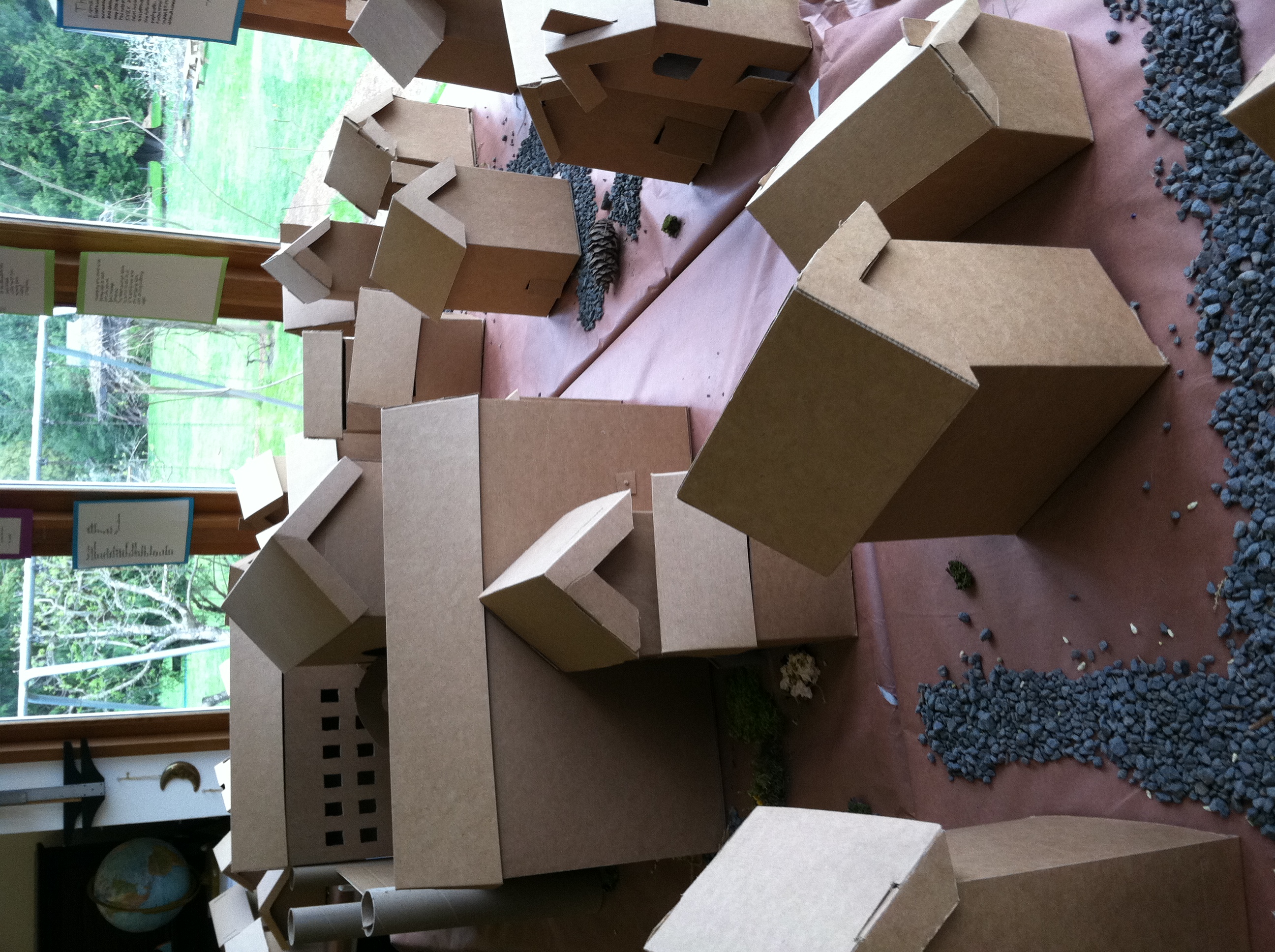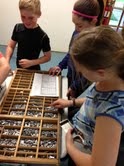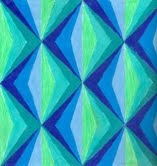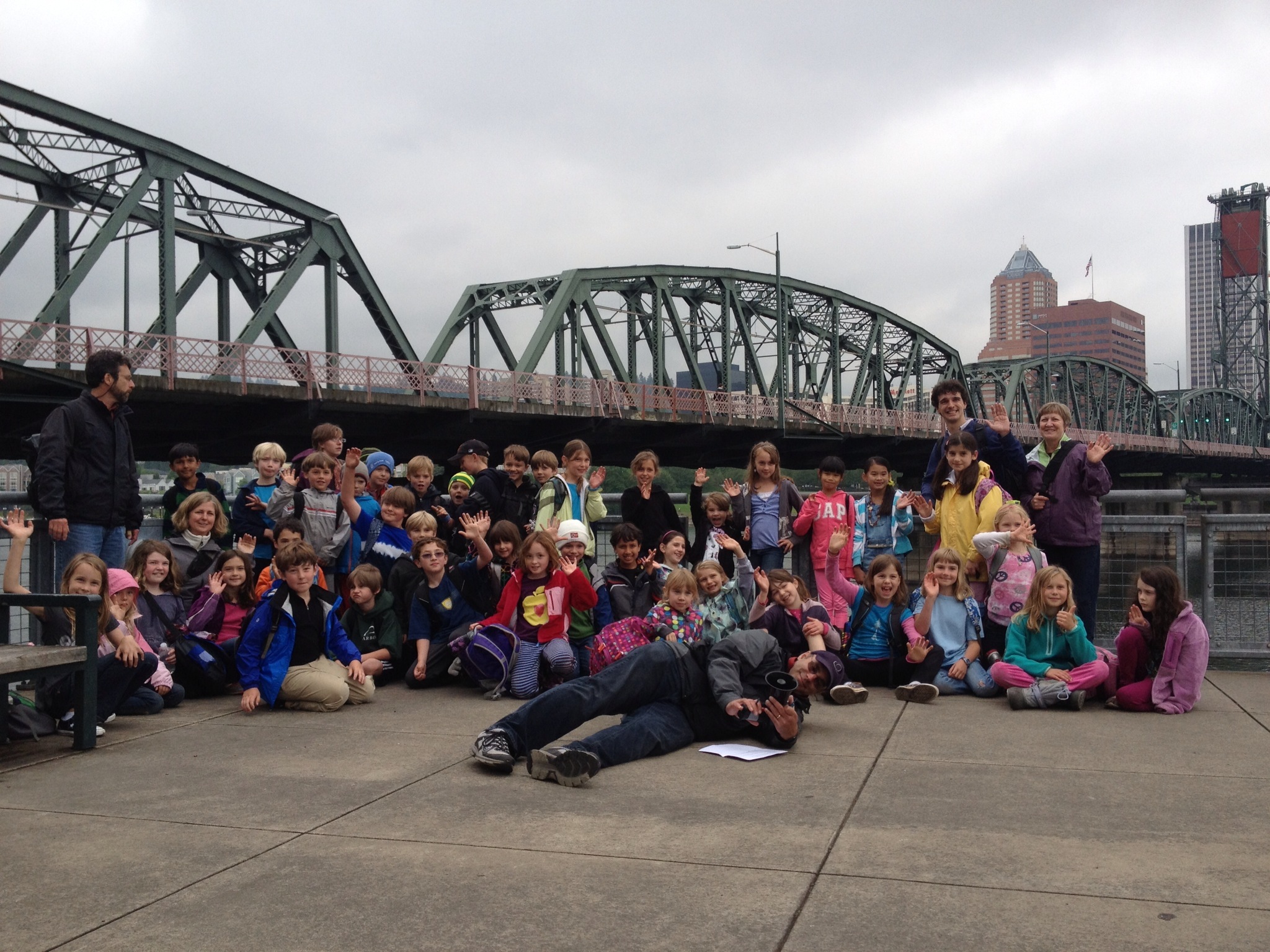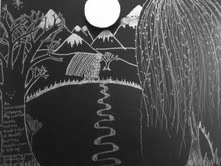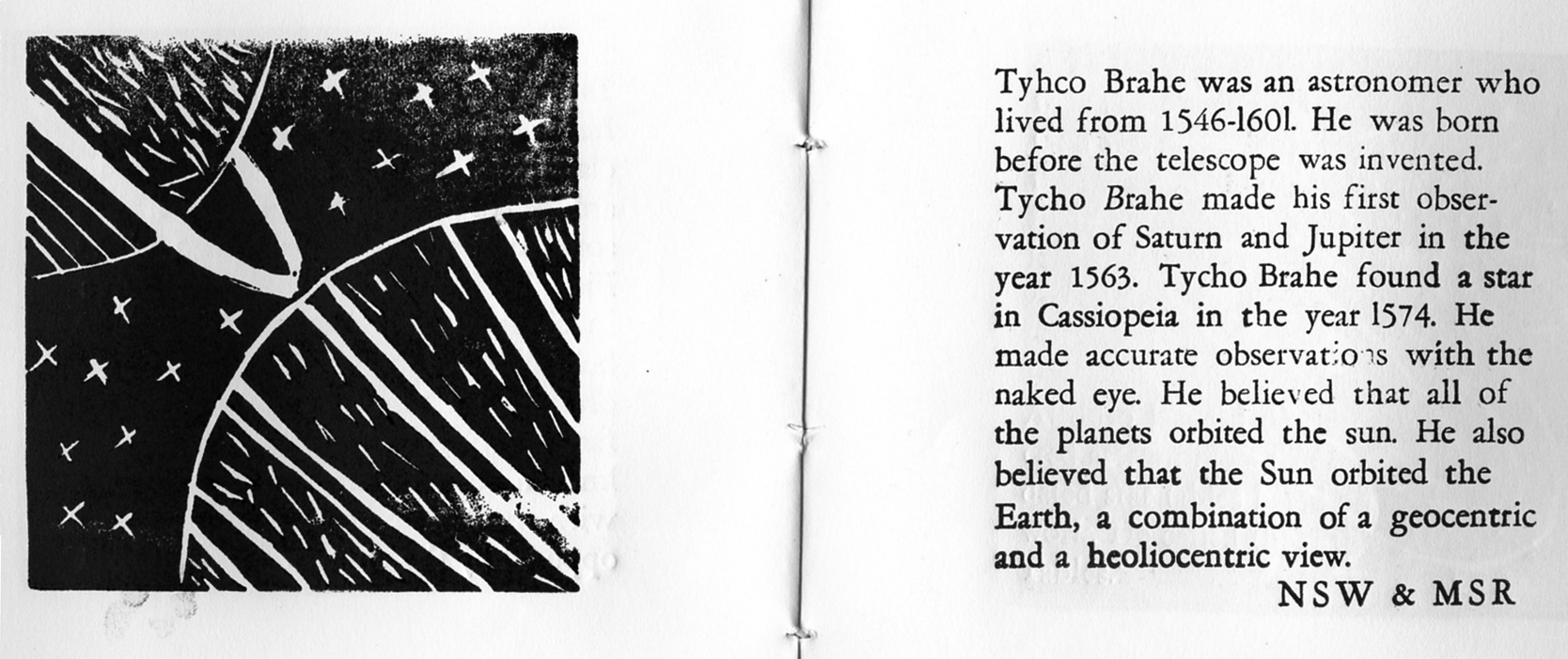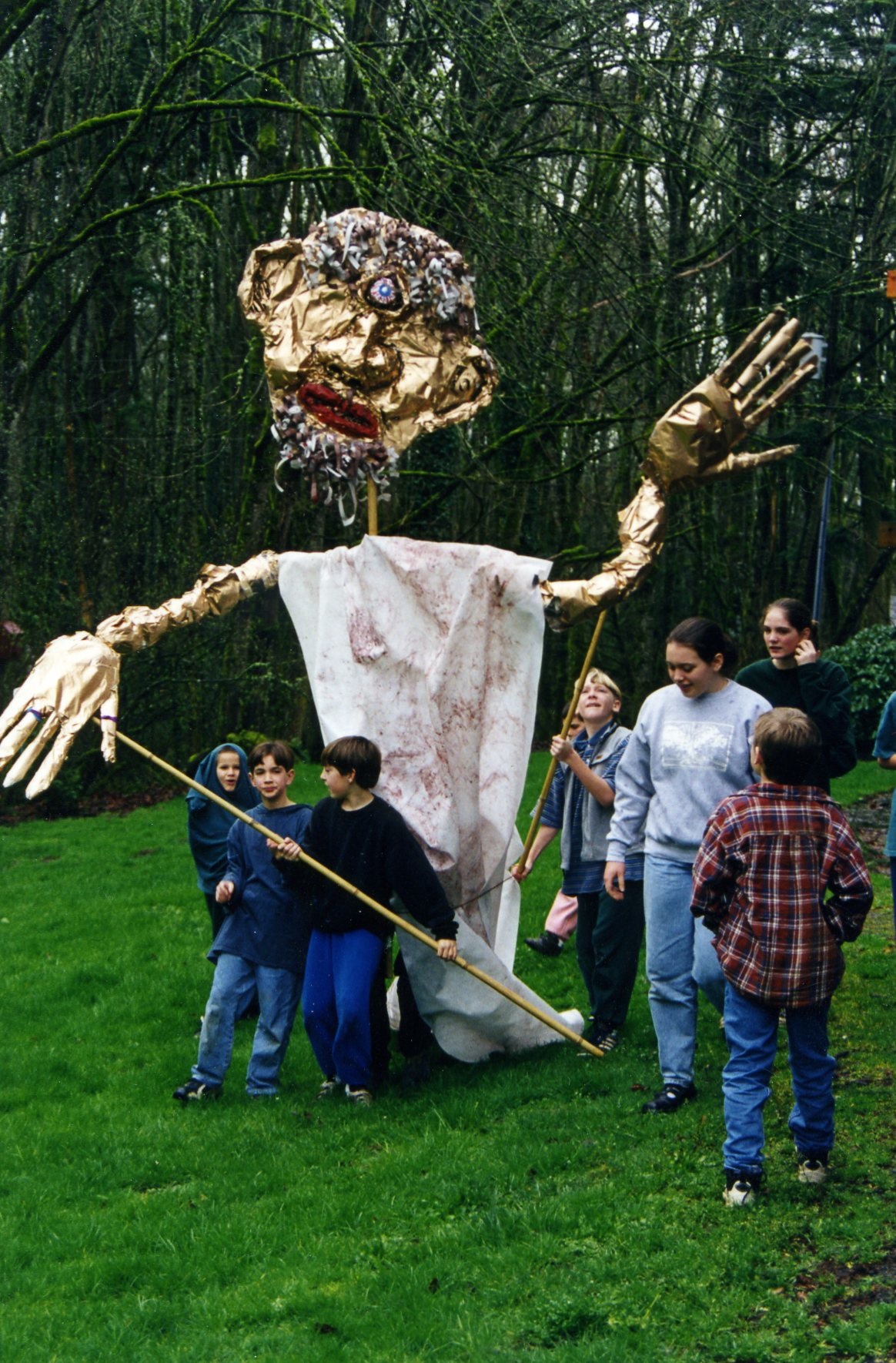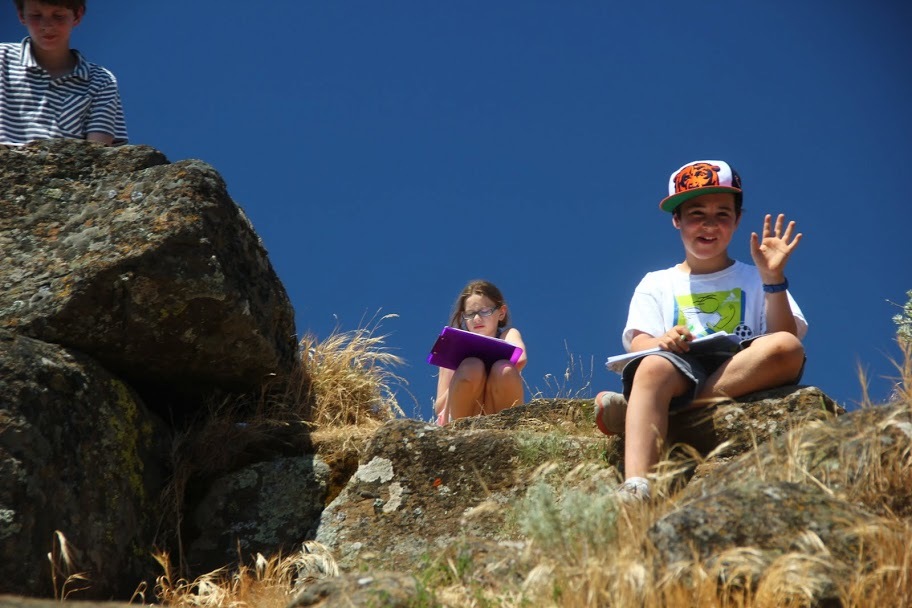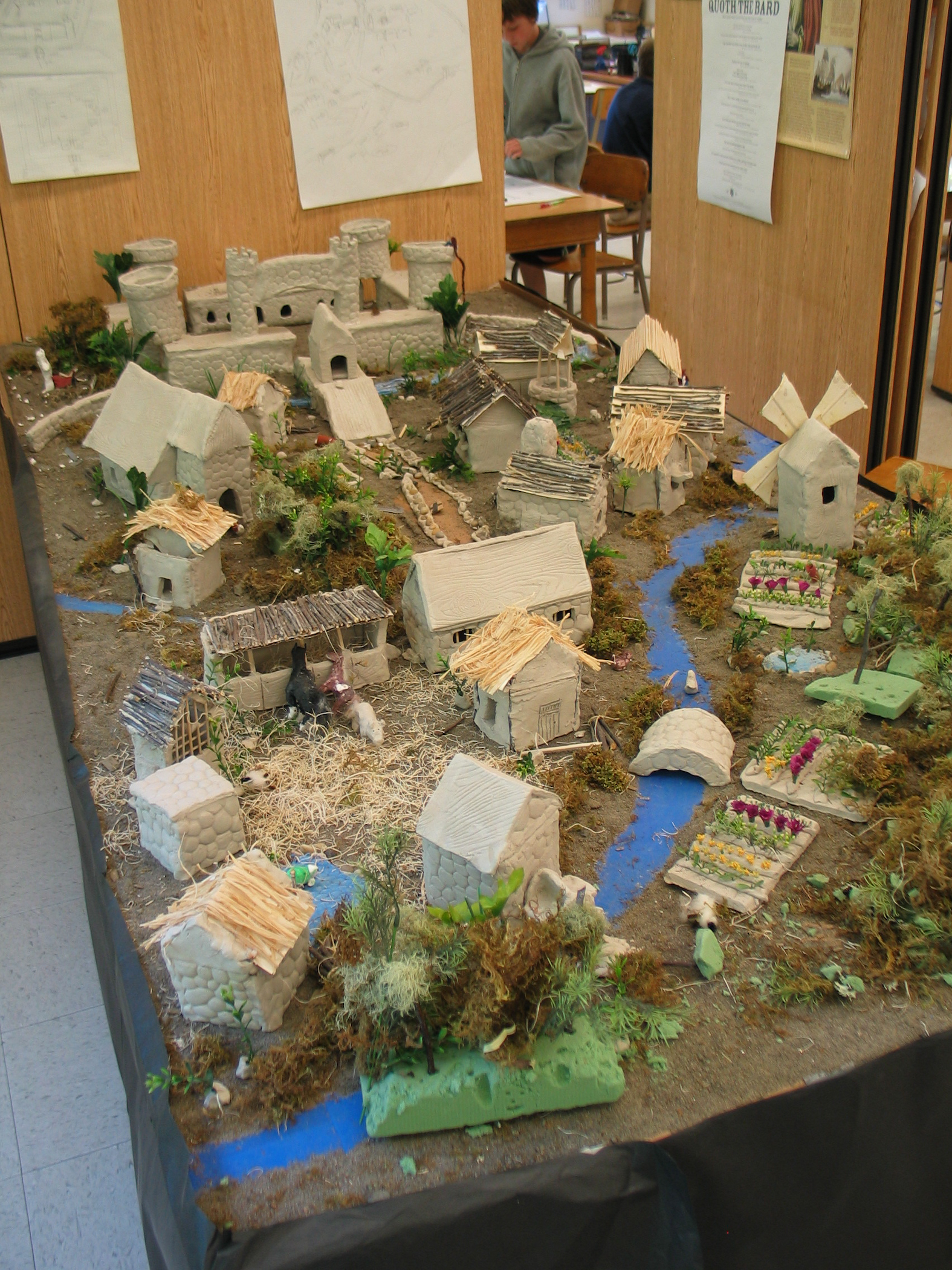INTERMEDIATES – Fourth and Fifth Grade
Year 1: Environments
Humanities, Science, Design
Environments—local and far flung, external and internal—are the Intermediates' focus this year. Students delve into the complex characteristics of various ecosystems and the plant and animal life that each niche, habitat, and biome supports. Experiments in botany predominate in the classroom as we learn about flowering plants and photosynthesis – and Arbor’s diverse natural spaces serve as a perfect laboratory. Intermediates discover more about their own internal systems as they study the human mind and body, creating personal change capsules in the process. The use of microscopes to investigate structures at the cellular level builds an important skill for further scientific study. Finally we turn to oceanography, exploring the vast richness of marine life and its cycles and predictable patterns, capped with a visit to some of Oregon’s teeming tidepools.
Campus Niche: plant experimentation, botanical drawing, mapping, scale
Cycles: water, photosynthetic, food chain
Oregon Habitats: adaptation, scientific classification of the biological world
Ecosystems and Biomes: climate patterns, world maps, indigenous folklore and origin myths
Human Body Systems: the physical body and the self
Oceanography: research and field study at the coast
Independent Projects: building on curiosity and sharing expertise
Students practice scale work and consider the problem of accurately portraying three-dimensional shapes on paper as they study and craft a variety of maps, local to global. They learn about neurology and undertake personal reflection as they map overlays of brain structures and functions onto photos of their own heads. A large-scale collaborative project—in some years a large mural, in others a tidepool populated with sewn felt creatures—and an overnight field trip to the Oregon coast fuse their understanding of the ecological niches in and near the sea.
Year 2: Inventions & Discoveries
Humanities, Science, Design
In this year-long exploration, the Intermediates consider the history of human ideas. We examine both conceptual and technical discoveries, from the invention of writing to the first printing press, from the Odyssey to the Arthurian legends, from the first use of zero to the development of algebra, from the principle of the arch to the innovation of the flying buttress. Throughout the year we study astronomy, seeing the world as the ancients saw it, following Galileo in his courageous attempt to disseminate a new understanding of the solar system, and pointing our own telescopes to the night sky. We use ancient number systems during math; build a timeline of the universe; illumine handwritten medieval historical fiction; set type, print, and bind a collaborative book; and write biographies of great figures from the Renaissance.
The Ancient Western World: Sumer, Egypt, Greece, Rome
Early Developments in Writing
Counting Systems
Building Principles
Astronomy
Mythology and Epic Poetry
Ancient Architecture
Density, Mass, and Volume
The Middle Ages and Europe
The Rise of Islam
The Three Estates of Medieval Society
Arthurian Legends and Historical Fiction
Tessellations and Stained Glass
Simple Machines and Fundamental Mechanical Principles
The Renaissance in Europe
Ancient ideas reignited in the West through Islamic influence
Brahe, Copernicus, Galileo
The Mathematics of Science
The Printing Press; Portraiture
Optics; Mapping; Biography
Mathematics
The Intermediate years continue the challenging trajectory of moving from the concrete to the representational to the abstract in deploying the four basic operations of arithmetic to approach and solve problems. Students build new knowledge and skills, working to understand and manipulate decimals, fractions, percentages, and ratios, all of which will support their comfortable progression into algebra as Seniors. We help them master and retain concepts through constant mixed review: students work on a wide variety of meaty problems that require strategic application of new and old skills.
We also give students more and more agency over their goals and pacing. We expect students to begin to work independently and motivate themselves as they encounter, explore, and synthesize each new concept. While intellectual safety is essential, we aim to create a collaborative atmosphere in which taking risks feels comfortable and rewarding and missteps are celebrated as leading to more thorough understanding.
Number and Operations: finding equivalent fractions for addition and subtraction; converting between fractions and decimals; basic operations with decimals; multi-digit and decimal multiplication and division; solving word problems with ratios and fractions; exploring the Fibonacci sequence and other patterns; basic rate/speed problems
Geometry: the Pythagorean theorem; the idea of proofs; developing the formula for finding the area of a triangle; finding unknown angles using vertically opposite and alternate interior angles; finding the area of a circle
Measurement & Data: displacement and volume; volume of cuboids and prisms; measuring and mapping elevation change as well as distances; metric and cubic unit conversions
Literacy
Intermediates devote much energy to observational writing, both by noticing rich and clear language in books and through scaffolded practice at improving their own descriptions. Weekly writing assignments guide students to develop vivid language and creative voice and then revise with their growing arsenal of editorial tools. Through their Theme work, they practice the conventions of scientific writing and build their muscle for a wide variety of genres, including storytelling, poetry, and biography. Science and Math also introduce a focus on writing to express understanding of fundamental concepts; students write "How I Know What I Know" science journal entries and create a personal, ever-expanding Math Strategies notebook. Intermediates spend four hours at school each week simply reading a good book. Their reading practice deepens through participation in book groups and frequent reading conferences with teachers as well as direct skill instruction as appropriate. We support students of this age in savoring complex, lengthy books with near independence, and make it a goal to broaden their taste by targeted recommendations across genres. They should also be becoming capable researchers, able to select nonfiction written at an accessible level and navigate efficiently to find desired information, distinguishing main ideas and recognizing when further sources are necessary for complete understanding.
